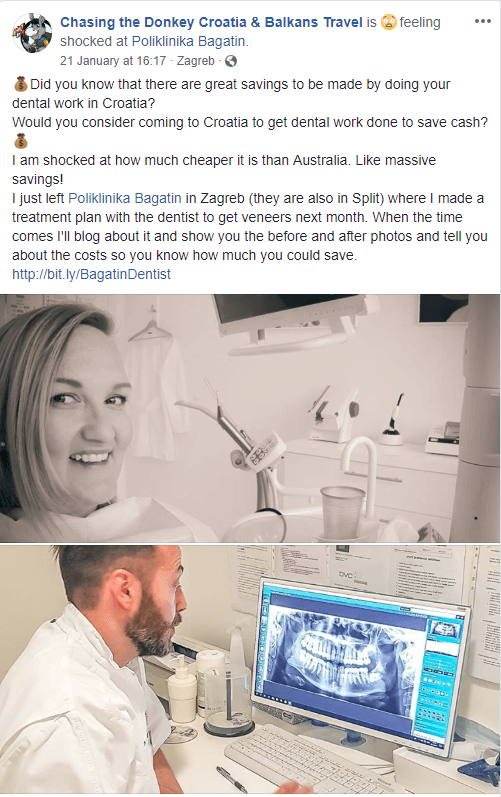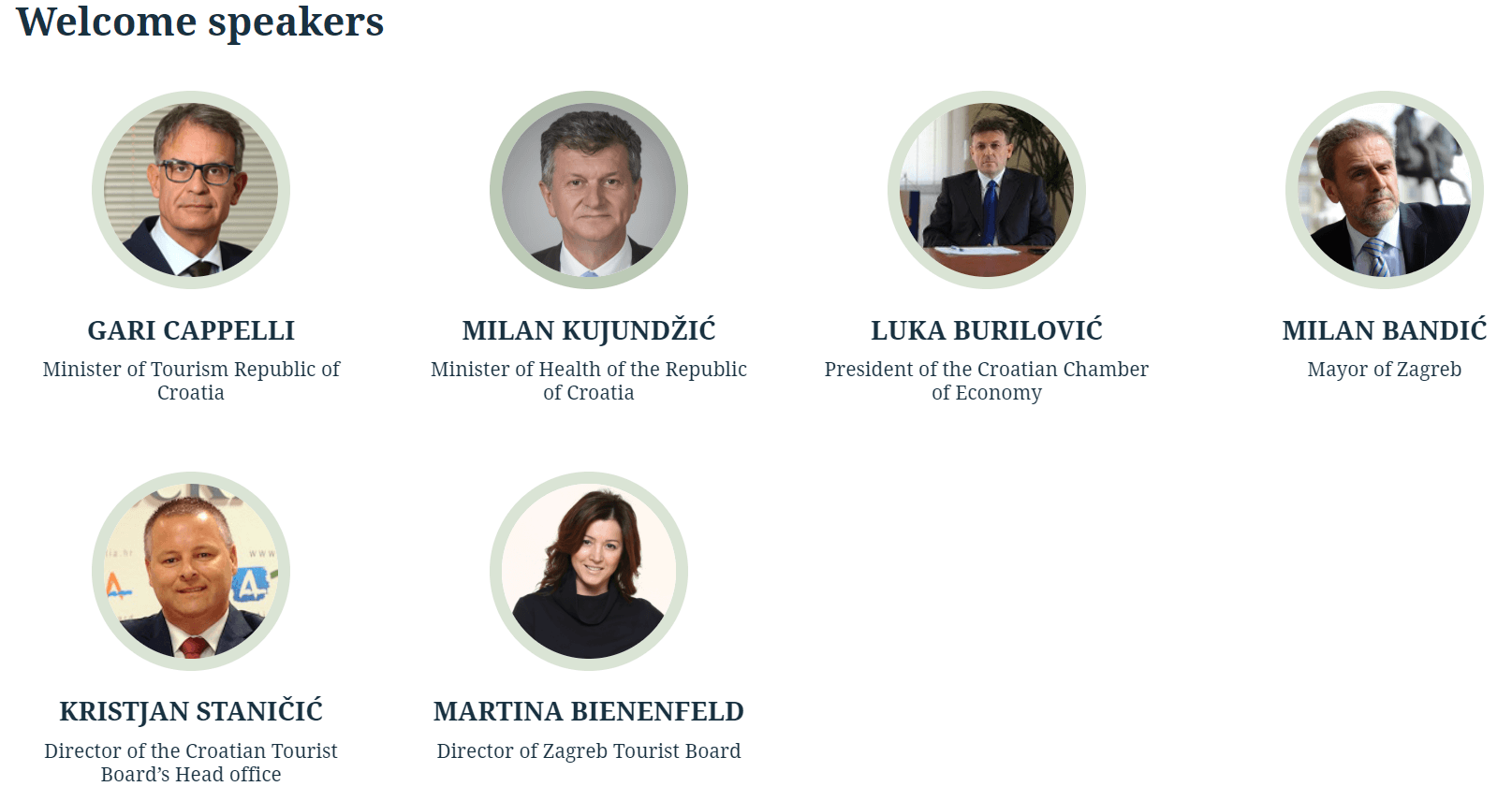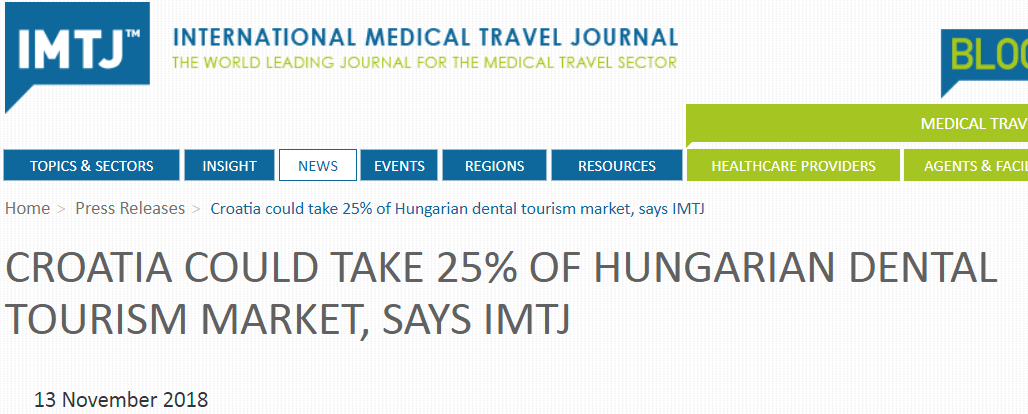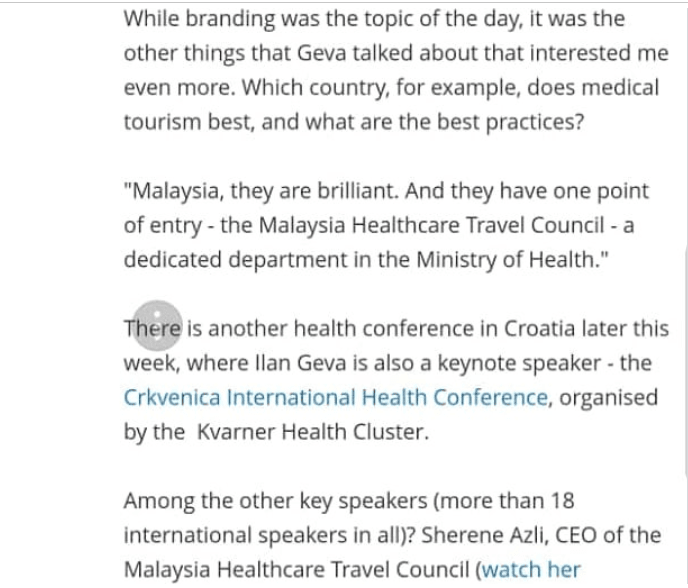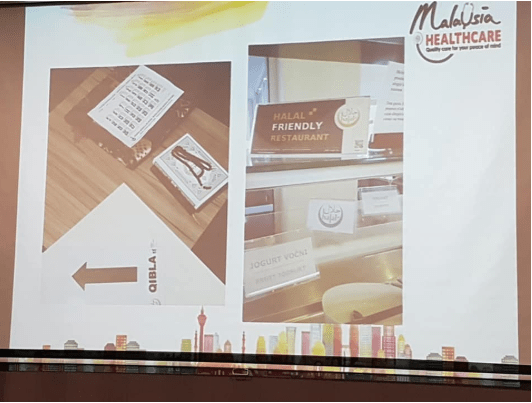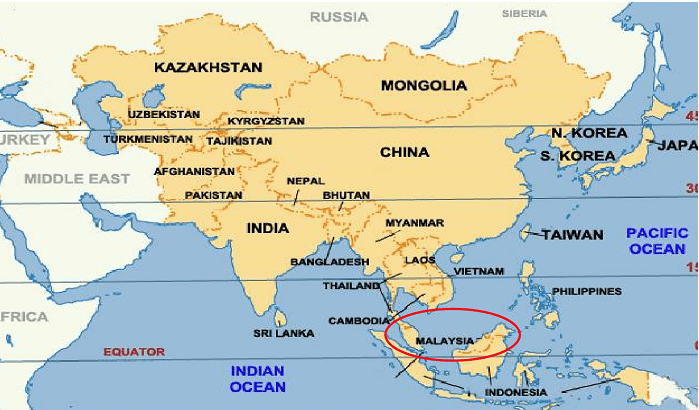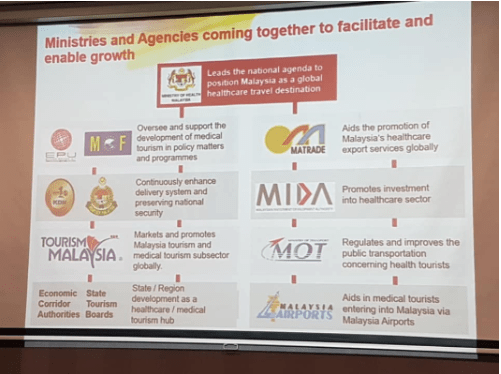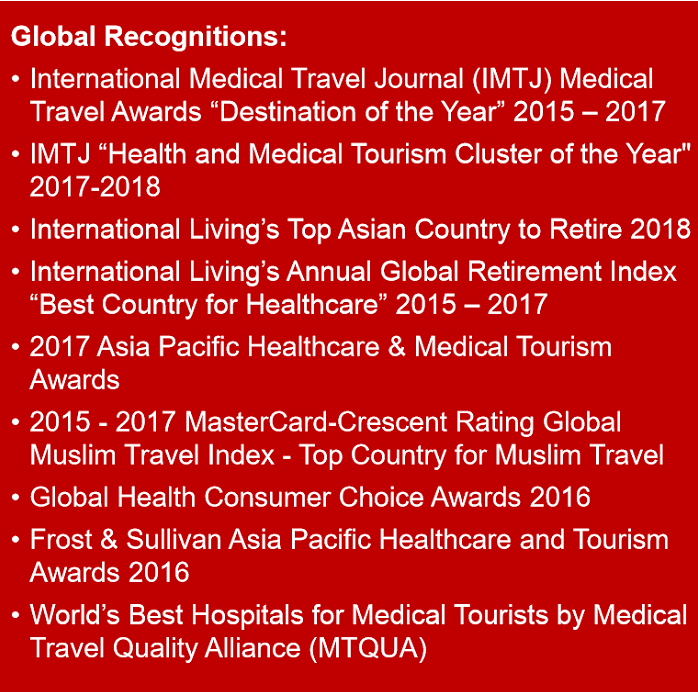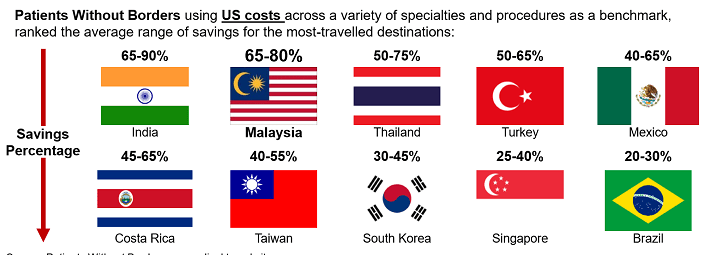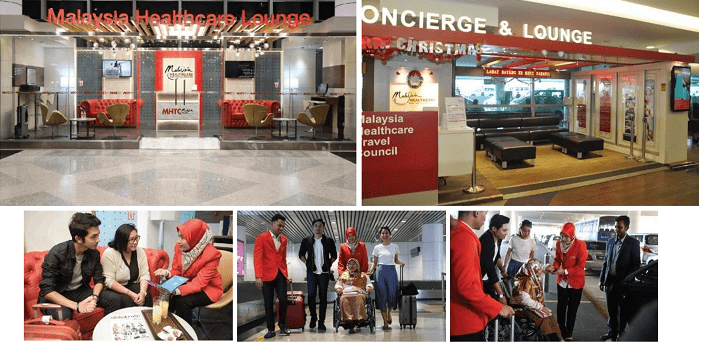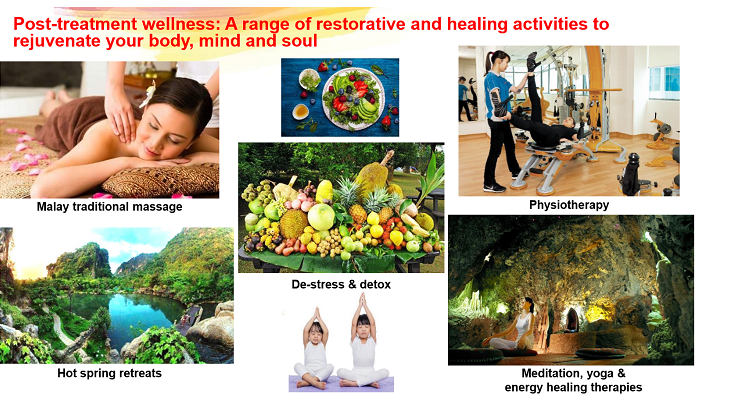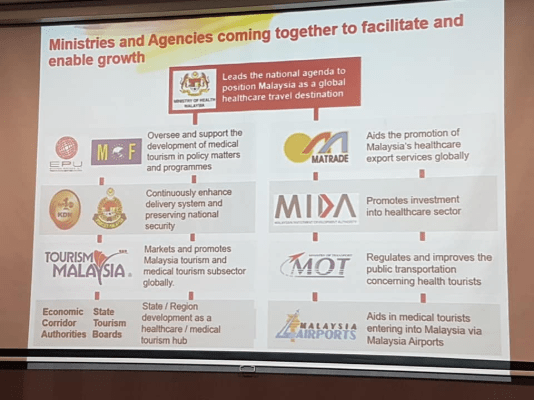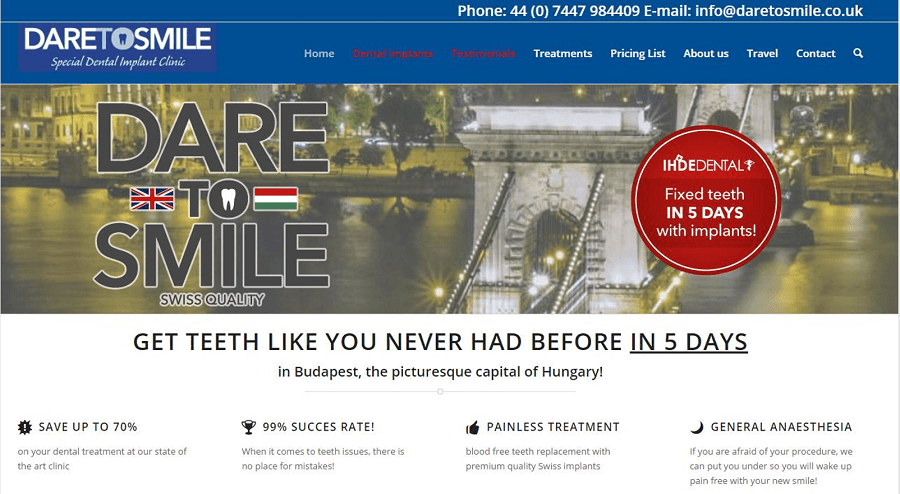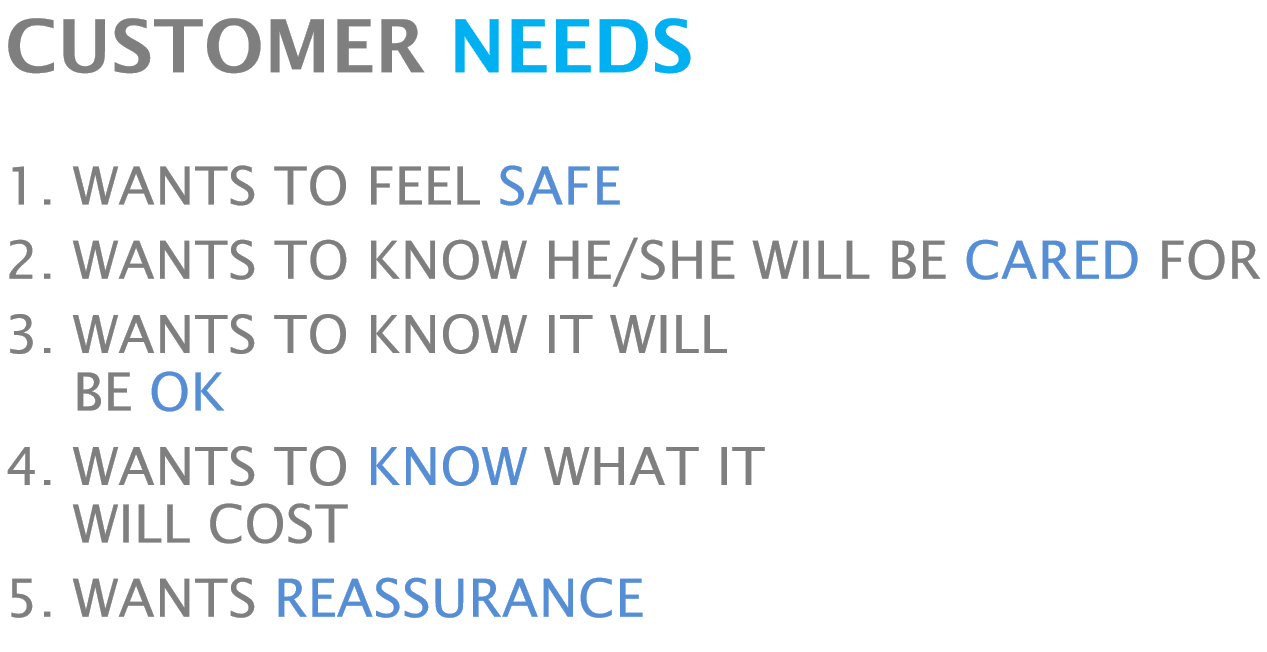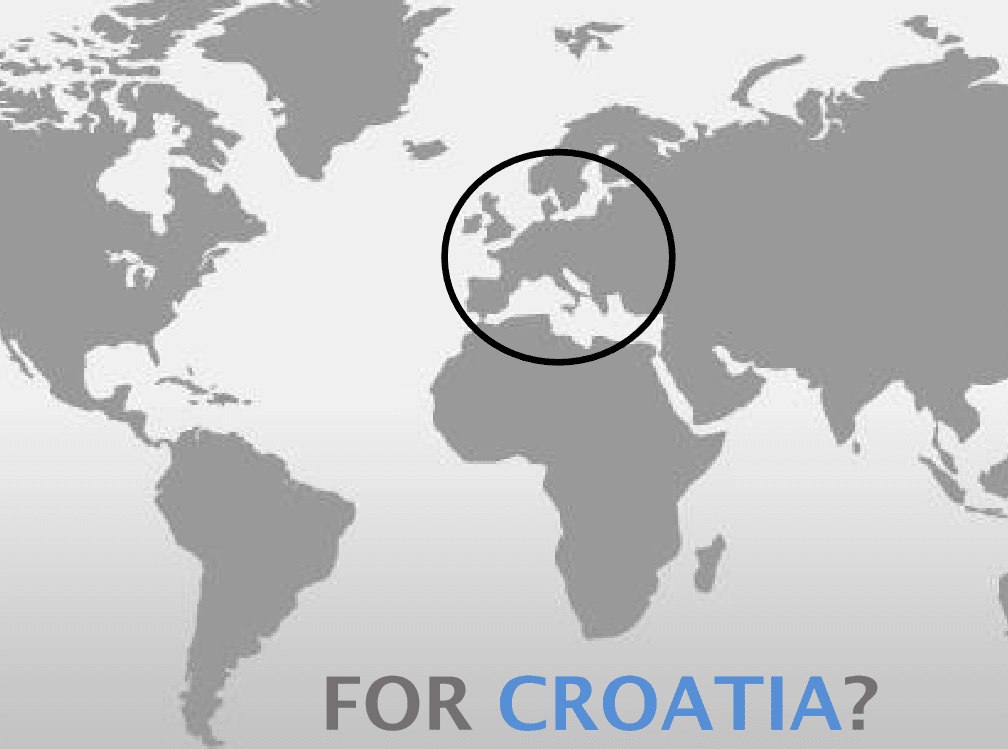Zagreb, the Health Tourism Destination: Meet the Clinics - 1. Bagatin
February 13, 2019 - As Zagreb makes a concerted effort to promote its considerable medical tourism potential, a look at the leading clinics, starting with one of its superstars, Bagatin.
One of the joys of being a foreigner living full-time in Croatia is that there is always something new to learn. When I moved into my house in Jelsa back in 2002, a very jovial neighbour came round to say hi and give me a bottle of wine. It was seven years later that I realised that he was one of Croatia's most famous winemakers, Andro Tomic. And through Andro, and especially his excellent wines, I discovered first the Hvar and then the Croatian wine story, culminating in our dedicated Total Croatia Wine portal.
And so too, almost 15 years after living in the country, I was introduced to another world of Croatian excellence about which I knew very little.
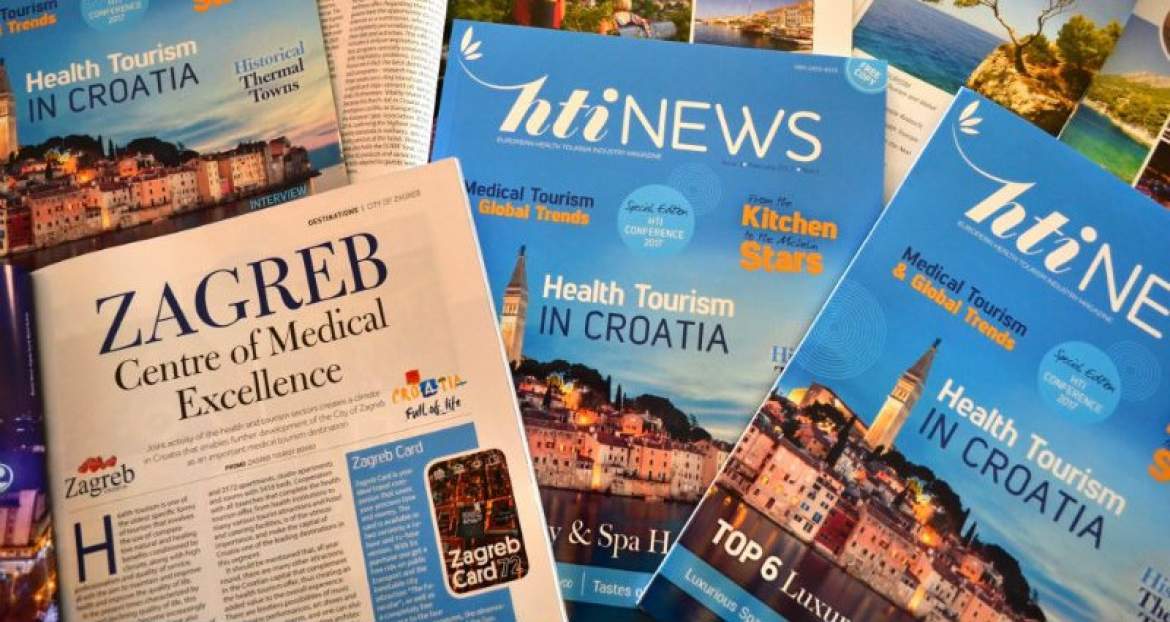
When we announced that we were starting our Total Zagreb portal, I received a message from a chap named Ognjen Bagatin, who invited me for coffee - he had been following the Total project for years apparently. We agreed to meet in his clinic on the 10th floor of Hotel Hilton Double Tree. And so began a journey of discovery which is still ongoing a couple of years later...
Living in Croatia one gets used to surly service and disinterested serving staff, and so when you encounter top-quality service from well-trained staff, you notice it immediately. Aminess Hotels in Novigrad is a prime example, just such a happy place to stay. And so too with Bagatin Clinic. Warm, polished, professional. The equipment was all cutting edge and business was brisk, but it was not his own clinic that young Bagatin wanted to discuss - he wanted to know what I knew about medical tourism in Croatia.
Embarrassingly little, it turned out, and what he showed me truly amazed me. Croatia had a Leading Hospital of the World, internationally recognised and attracting many famous sports starts for treatment (St. Catherine Specialty Hospital). It had a leading regional eye clinic with internationally acclaimed surgeons who had performed tens of thousands of successful operations at a fraction of Western prices (Svjetlost). And it had Bagatin, which I was soon to learn was much more than a standard clinic in Zagreb. I wrote my first article on the health tourism potential of Croatia - Health Tourism is Coming Home: Why Zagreb is the Next Big Medical Tourism Destination.
The topic got my attention, and the more I investigated, the more I was amazed. Here are 25 things to know about health tourism in Croatia - pretty impressive, right?
(Others are beginning to notice)
And wherever I looked, at every turn, there was that man who introduced me to the world and possibilities of medical tourism - Ognjen Bagatin. Trade shows in Los Angeles, conferences in Moscow, he was there flying the flag for Croatia and its medical tourism industry. And while some businesses compensate for a poor product (who said Zuja?) with fantastic marketing, it seemed the Bagatin product more than matched its impressive marketing. The clinic specialised in four main areas: dermatology, plastic surgery, dentistry and cosmetic treatments. Here are just a few awards and recognitions of quality:
The best dermatology clinic in all Europe.
2018 Dental Implants Award for Full Mouth Reconstruction from American platform, Dental Implants Friends. And if you want to see a real-life example of how Bagatin's dental expertise literally changed an American's life, while saving tens of thousands of dollars, there is no finer example than Carl's incredible story. (see Carl below, but I really encourage you to read his story)
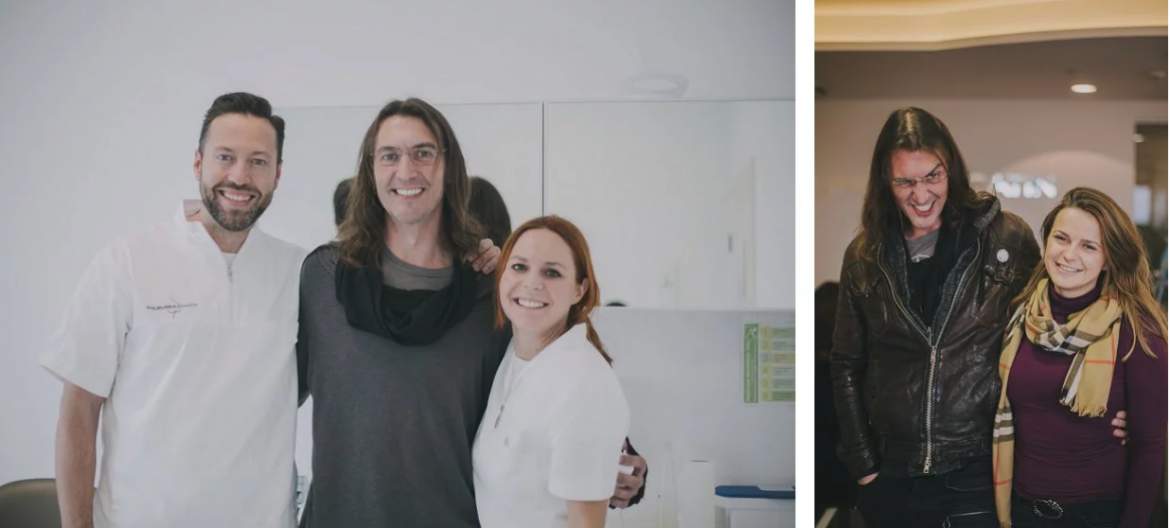
International Cosmetic Surgery of the Year 2017 at the International Medical Travel Journal awards.
Each year, the Bagatin surgeons are recognised among Croatia's best, with no less than 11 making the Najdoktor list in 2018.
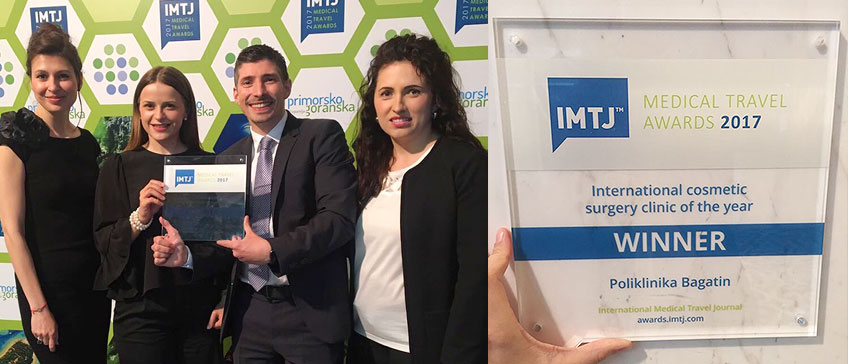
In order to attract international clients, the latest equipment is essential to be competitive and to build trust for the patient. Bagatin prides itself on offering the best service possible, from initial welcome to the latest equipment.
In addition to its considerable international promotion of health tourism in Croatia, Bagatin is assisting many businesses and clinics with their professional development and communications skills via the Bagatin Academy. More than 50 quality professional trainers focus on soft skills developments in the areas of stress management, team management, communication, presentation and public speaking, top-level service, conflict management, and negotiating. Education is delivered through lectures, workshops and other training methods.
The Bagatin Academy is also a powerful networking tool, attracting as it does many of the top people from the Croatian business world, and it is a great place to organise B2B lunches and other business gatherings. The academy project has some strong official support, including the President of the Republic of Croatia, the Croatian Chamber of Physicians, the Croatian Chamber of Commerce, the American Chamber of Commerce in Croatia, the Croatian Pharmacy Chamber and the Croatian Chamber of Nurses. The project is supported by Resisto Educational Houses, Janus PIM and Knowledge Map, as well as the portal Moj Posao, magazine Poduzetnik, Dental Tribune and MTV UP! energy drink.
To learn more about the Bagatin Academy and its upcoming events, visit the official academy website.
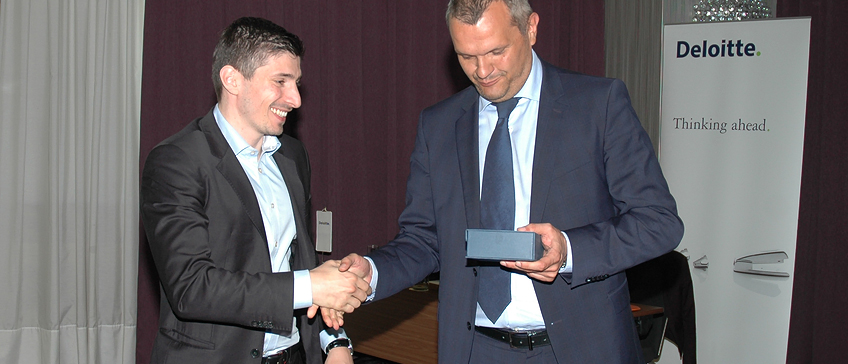
As one would expect for such a successful business, Bagatin Clinic has also been recognised as a business as well as its healthcare. In 2015, Deloitte named it the fastest-growing small and medium-sized business in Croatia.
And it continues to grow...
In January, 2019, Bagatin opened its doors in Dalmatia with its first clinic in Split. You can learn more about the Split clinic here, but I defy you to find a clinic with a better view to accompany the high standard of service. The Split opening is excellent news for tourists who are contemplating combining some medical procedures with their holiday, with the savings really adding up. The arrival of Bagatin in Split is just one more piece in the jigsaw of establishing the Croatian medical tourism story.
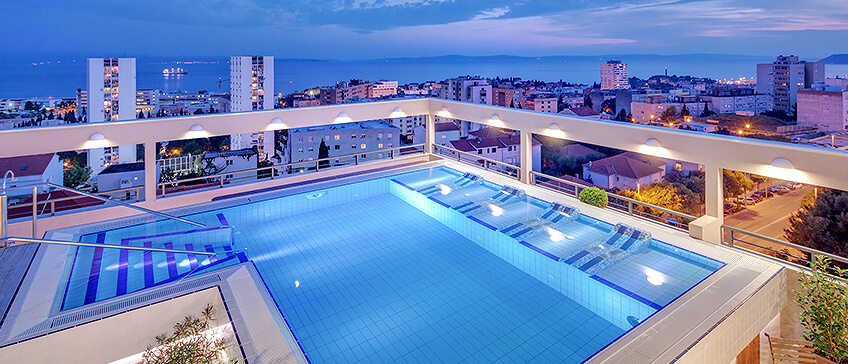
To learn more about Bagatin, visit the official website.
To learn more about medical tourism in Croatia, follow our dedicated page.
Zagreb Health Tourism Promotion Initiative Launched
“Zagreb – The Centre of Medical Excellence” – This is the new motto of the Zagreb Tourist Board, which has decided to more seriously dedicate its efforts towards the development of Zagreb health tourism capabilities, reports Večernji List on February 7, 2019.
Last year, it commissioned the Medical Tourism Association from the United States to draft a feasibility study for the development of health tourism in Zagreb and its surroundings. In recent days, the study was officially presented at the Health Spot Croatia conference, which was organised jointly with the Croatian National Tourist Board. They also released a new brochure and designed a special website promoting health tourism, which will this year also be presented at specialised fairs, conferences and events around the world, beginning next week in Tel Aviv, Israel.
"If we want to use all of its possibilities, health tourism needs to be more seriously strategically developed," says Martina Bienenfeld, the director of the Zagreb City Tourist Board, adding that Zagreb already has medical clinics that are equal in their quality level with many of the international ones. Most of them are privately-owned, and this fact is precisely one of the reasons where Nikica Gabrić, the owner of the Svjetlost Polyclinic, where many foreign patients come for their laser vision correction surgeries, sees a sort of an obstacle.
“Private clinics are not equal in their status with the state-owned institutions because they cannot withdraw money from the European Union funds, and therefore they need administrative and government support,” Gabrić said.
The area surrounding Zagreb is equally attractive for the development of medical tourism, says Bienenfeld. Just a half hour drive from the capital is Naftalan, the only European spa resort known for its therapeutic oil springs and thermo-mineral water.
The majority of health tourists to Zagreb come from Slovenia, Italy and Germany, and most often they arrive to see dentists, ophthalmologists and plastic surgeons, since the prices in Croatia are substantially lower than in their countries, while the quality of medical services is equal and sometimes even better.
More news on the development of medical and health tourism in Croatia can be found in the Travel section.
Translated from Večernji List (reported by Petra Balija).
Health Spot Croatia: Major Medical Tourism Conference in Zagreb Tomorrow
February 4, 2019 - A major health conference takes place in Zagreb tomorrow, as Health Spot Croatia will feature many of the key stakeholder heavyweights. Is Croatia finally getting united?
Could it finally be?
One of the greatest potentials for the Croatian economy in general, and Croatian tourism in particular, looks set to take one major step forward tomorrow, with the first Health Spot Croatia conference in Zagreb, a conference bringing together 200 industry professionals and stakeholders together to discuss ways to move the Croatian medical tourism story forward.
Medical tourism is a topic which TCN has written about a lot in recent months, as international expert after international expert has concluded the same thing - that Croatia has the potential to be one of the top 10 countries for medical tourism in the world. The major obstacle preventing that from happening was the inability of Croatian officials to unite to make that happen. After learning about the shining example of Malaysia at the Crikvenica International Health Conference a few months ago, and having interviewed several of the key international experts, I wrote Can Croatian Officials Unite to Exploit Huge Medical Tourism Opportunity?
There will be no better opportunity than tomorrow, with welcoming speeches coming from the Ministers of Health and Tourism, Mayor of Zagreb, Director of the Croatian National Tourist Board, Director of the Zagreb Tourist Board and the President of the Chamber of Commerce. Other keynote speakers include Keith Pollard, Editor-in-Chief of the International Medical Travel Journal, Tomislav Mihaljevic, President and CEO of Cleveland Clinic, and Dragan Primorac of St. Catherine's Hospital.
During the conference, the Zagreb Tourist Board will be presenting its much-anticipated feasibility study for health tourism in the city. According to the official website:
Over 200 participants and leading experts in the fields of medicine, healthcare, wellness and tourism from Croatia and other countries expected at the conference will discuss the present and future developments in health tourism, introduce strategies for creating new products and new experiences, and present examples of best practices in the field. The conference provides a marvellous opportunity for interaction between providers of tourist and health services. Over 200 participants and leading experts in the fields of medicine, healthcare, wellness and tourism from Croatia and other countries expected at the conference will discuss the present and future developments in health tourism, introduce strategies for creating new products and new experiences, and present examples of best practices in the field. The conference provides a marvellous opportunity for interaction between providers of tourist and health services.
We believe that the HEALTH SPOT CROATIA conference is an important step in making Croatia and Zagreb very attractive as a health tourism destination and would like to invite you to join us at the conference and become a part of this exciting journey.
For details on the official programme tomorrow at Hotel Esplanade, visit the official Health Spot Croatia website.
To follow more on medical tourism in Croatia, follow the dedicated TCN health tourism page.
While Croatia Keeps Debating, Others Are Profiting from Health Tourism
The global growth of medical and health tourism industry is estimated at 15 to 20% per year, and by 2025, according to estimates by Business Insider, it should amount to over 120 billion dollars, writes Jadranka Primorac for Slobodna Dalmacija on December 8, 2018.
The growth in the demand for medical and health tourism services in the world is mostly generated by the crisis in healthcare systems of developed countries, the high cost of health services, long waiting lists, and the general trend of population aging. The European Commission's most recent estimates show that in Europe by the year 2040, people older than 65 will represent 26% of the total population, so the growth in healthcare services being provided abroad will be even more critical.
The question is whether Croatia as a state is ready to respond to the future challenges to redirect at least part of this revenue to the Croatian healthcare institutions since many countries have already realized a significant economic development potential of this branch.
However, while Croatia keeps discussing its potential, governments around the world are launching various initiatives to encourage and develop the health and medical tourism market in their countries. Turkey, for example, not only invests immense financial resources in promotion and marketing but has also introduced so-called "medical visas" and special low-cost flights to Turkey.
Also, it has exempted from paying the VAT all international patients receiving medical care in the area of preventive medicine, various diagnostic services, dentistry, care and rehabilitation in all medical institutions accredited by the Ministry of Health. Also, the government has signed contracts with international social security and insurance institutions to attract seniors to come to Turkey for care and treatments.
The Health Tourism Department of the Ministry of Health has a phone contact service for international patients which provides around-the-clock translation services in four languages: English, German, Russian and Arabic, and the official goal of the Turkish government is to earn 20 billion dollars annually by 2023 from health and medical tourism.
Another good example is Hungary, which was visited by about 2.5 million medical and wellness tourists in 2017, according to the information provided by the Hungarian Statistical Office. The most sought-after services are dentistry, ophthalmology, aesthetic surgery, and medical assisted fertilization (IVF), in addition to the well-developed spa centers. Hungarian dentists, who aim to attract foreign patients, have also received substantial grants from EU funds, while on the other hand they also have the right to state funding, as part of a plan that supports the development of dental tourism in Hungary.
The targeted funding by an economic development programme, through the National Agency for Development and the Hungarian Central Operational Programme, has been received by 136 dental clinics, thus achieving a 19% increase in revenue. It is important to note that most Hungarian cities are well-connected and have several direct daily flights to almost all European cities.
Poland also has excellent results in medical tourism, particularly in the UK market, but also in the Scandinavian countries. Dental services and aesthetic surgery are still the most popular services for medical tourists, but orthopedics, neurosurgery, medical assisted fertilization treatments and oncology are also on the rise. In Poland, there is also a high level of availability of low-cost flights, inexpensive accommodation options and an attractive tourist offer, which all brings in medical tourists.
An increasing number of clinics and hospitals offer packages that include transportation to and from the airport, as well as accommodation in apartments or hotels, sightseeing of cultural sites, and gastronomic offer. The cost of treatment in Poland is up to 40% lower than in Germany or the UK. A unique feature of health and medical tourism, which makes it a real economic activity, is its multiplying effect, since it develops many different sectors, with medical tourists spending up to 30% more than regular tourists.
As far as medical and health tourism is concerned, Croatia is still trying to wake up, although it has great potential, primarily because it has a high level of medical excellence, great doctors, including some internationally renowned, as well as safety and security, which is crucial. There is a whole market of tourists who adore Croatia, but who probably do not even think they could find a solution to their health problems in Croatia. In their heads, there is no link between Croatia as a summer destination and Croatia as an accessible solution for obtaining quality healthcare. It is absurd that, of the 19 million foreign tourists who visited Croatia this year, the number of those who came for medical treatment is at the level of a rounding error.
Creating an attractive and sustainable destination for medical and health tourism requires a long-term strategy. The strength of the tourist brand which Croatia has should be exploited for further positioning on the health-tourism market. Foreign tourists do not have a generally developed trust in the Croatian health system but base it on individual experiences, and this is not nearly enough for the arrival of foreign patients.
All of us who "live" the medical tourism often find ourselves in situations in which patients coming from countries in which the perception of Croatia is not great are shocked when they discover they can get better service here than at home, often at a price which is two to three times lower than in their countries. They can also enjoy other attractions, from natural phenomena, cultural heritage to gastronomy. If we look at the surrounding states, I am sure that with a good marketing strategy we can redirect to Croatia 30% of patients coming to neighboring Hungary or Poland.
Let us not forget that Croatia has excellent potential in health tourism. For example, Slovenia and Hungary have long ago privatized or put into public-private function all their spa facilities and completely renovated them with grants from EU funds, which was the European Commission's recommendation, since it is firmly committed to a public-private partnership, because it believes that the sluggish public sector cannot be activated without the support of a more efficient private sector, nor can it finish projects.
To make a new step forward and develop health tourism, in addition to individual activities and efforts by individual healthcare institutions, stronger state support is needed, primarily through defining and implementing clear rules which apply equally to all businesses in Croatia.
For example, the use of financial resources from European funds allocated to health should be allowed, in addition to public institutions, to private healthcare institutions as well, as it is the case in other well-regulated EU countries. Also, to make healthcare a desirable investment segment, it must be possible to use the benefits of the Investment Promotion Act, which is not the case now. Furthermore, the Croatian Tourist Board and the Ministry of Tourism already have well-developed promotion and sales channels, which need to be modernized and adapted to add new content and services that the health sector can help develop.
Nothing will happen by itself, but only because of innovative and creative individuals and companies which listen to what the medical tourism market is looking for and try to improve their offer by creating high-quality content. Global changes in this type of tourism are taking place exceptionally quickly, and we must not give over to chaos, but we have to get involved and know how to deal with them, which demands a much greater involvement from the state authorities, but also from all other stakeholders than it has been the case until now.
Given that Croatia is becoming an increasingly desirable and popular tourist destination, this moment should be used to give it added value because the effects of tourism should not be limited just to hotels, marinas or camps, i.e., “sun and sea,” but they should be much more extensive. The impact on Croatia's reputation of this synergy between health and tourism is invaluable, and it represents an entirely different positioning of Croatia in the world, not only regarding its natural beauty but also concerning knowledge-based added value.
The author is a member of the Management Board of the St. Catherine's Speciality Hospital responsible for financial and strategic issues. She is also the president of the Association of Private Polyclinics, Hospitals, Spas and Healthcare Institutions at the Croatian Employers' Association.
For more on medical tourism in Croatia, click here.
Success Breeds Success as Dental Tourism Joins Advent in Zagreb
November 24, 2018 - The popularity and success of Advent in Zagreb is providing new opportunities in other sectors of Croatian tourism, with Bagatin Clinic the first to link it to Croatia's huge dental tourism potential.
Writing about Croatian tourism is a little like watching Real Madrid play at times. A group of world-class individuals who often cannot come together and transfer all that individual talent into something cohesive for the team. And then, on occasion, when it does happen, it is like watching poetry in motion.
Croatia has some exceptional tourism superstars, which if properly coached and encouraged, could catapult the country towards its goal of becoming a year-round destination. Among these areas I would include gastro-tourism (it is six years since the late Anthony Bourdain was blown away by the 'world class food', 'world class wine' and 'world class cheese'), and medical tourism.
Croatia also has some great and innovative tourism success stories, none more so than Advent in Zagreb, an event which barely existed just a few years ago, but one which has been voted the best Christmas market in Europe for the last three years running. Zagreb was hardly on the tourism map at all ten years ago, especially in December, and yet this year's Advent will once again welcome hundreds of thousands of tourists to the Croatian capital.
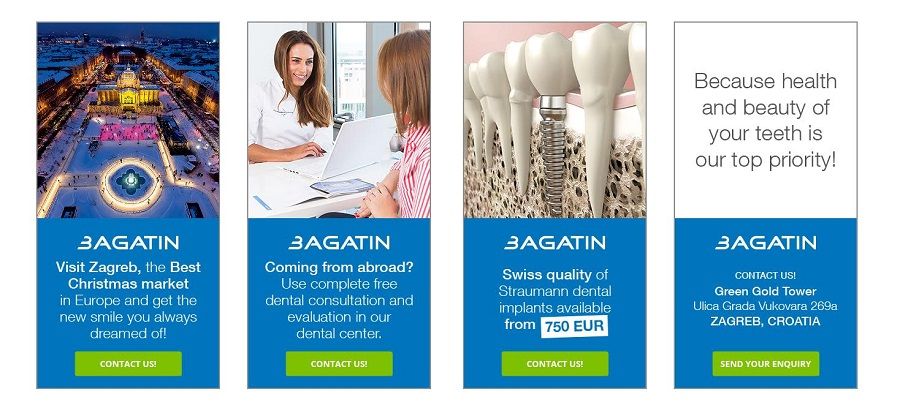
Advent in Zagreb, another Real Madrid superstar of the Croatian tourism scene. Apart from the tourism experience that Advent in Zagreb brings for the city itself, it is also an opportunity for those other tourism sectors to link up with the welcome surge of winter tourism traffic. Nowhere is this truer than the Croatian medical tourism industry, which operates 12 months of the year, and whose excellence in the fields of dentistry, cosmetic surgery, eye surgery, dermatology and stem cell therapy is well-documented (learn more with 25 things to know about Croatian health tourism). Croatia is currently the only place in Europe where one can take the innovative new Mayo Clinic OneMed RightMed pharmacogenetic test.
Croatia has some 18 million tourists annually. If just 1% of those pre-planned to get their teeth, eyes or some cosmetic surgery, that would be 180,000 patients a year for the Croatian medical tourism industry. And industry experts agree on the potential of Croatian medical tourism. In a recent interview with TCN, Keith Pollard, Editor in Chief of International Medical Travel Journal, the industry's leading publication, said that Croatia could take 25% of the Hungarian dental tourism market 'if Croatia really got its act together'. The Hungarians are the regional leaders in playing together to develop the industry, something Croatia could aspire to - Pollard said that the quality of the dentistry in both countries is essentially the same.
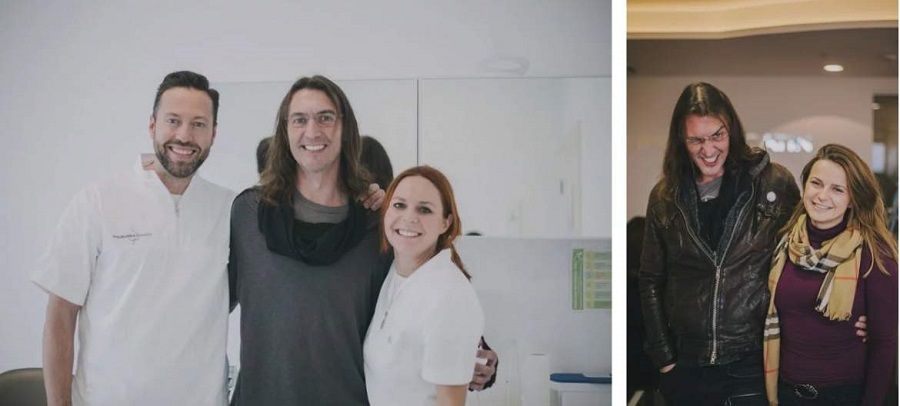
Leading clinic Bagatin is, I think, the first to link Advent in Zagreb with dental tourism this week, encouraging Zagreb's foreign tourists to visit their clinic while they are visiting Zagreb's famous Christmas market. Bagatin is offering free consultations to foreign guests and also has the capacity to deal with the dental work at short notice, so the chance to come to Croatia for an Advent experience and leave with a brand new smile - the savings of which more than fund the entire trip - is a concept that more tourists will be investigating as word about Croatian healthcare and tourism combinations continues to spread. One man who can vouch for this winning formula is an American called Carl, whose dental experience at last year's Advent in Zagreb was not only the trip of a lifetime, but also quite literally life-changing. It is probably the best Croatian tourism promotion story I have ever read, and certainly a heartwarming tale. Read Carl's story here. To learn more about dental treatment at Bagatin Clinic, which will be opening a clinic in Split early next year to cater to the huge tourism market in the Dalmatian capital, click here.
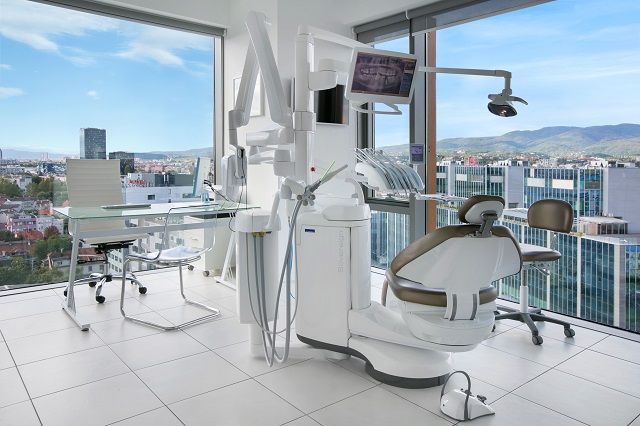
While affordability and excellent care are two of the cornerstones of the Croatian medical tourism industry, so too is speed. In Carl's case, above, the prescribed work back in the United States was planned over a two-year period, while he got a completely new mouth in just 10 days in Zagreb last winter. With a little forward planning, the chance exists to get all required dental care done over the holiday period, while still enjoying the magical festive atmosphere. And the medical options are not restricted to dental tourism. Croatia has, among others, outstanding eye laser surgery through pioneering clinic Svjetlost. As previously written, Svjetost produces major savings as well as very quick treatment, including one example of an Italian patient who underwent FemtoLASIK surgery on both eyes. The procedure was entirely painless, took 5 minutes per eye, and the patient was free to travel with perfect vision after a check-up 24 hours later. The cost of the surgery in Italy? About 6,500 euro, compared to 1,700 in Croatia.
Advent in Zagreb and medical tourism in Croatia - two Real Madrid stars in Croatia who are beginning to gel together, a partnership which will bring benefits to all.
To follow the latest from the Croatian medical tourism scene, follow TCN's dedicated coverage here.
Pannonian Health Cluster Developing Medical Tourism in Eastern Croatia
Nine months ago, the first health tourism cluster in eastern Croatia was presented, called Pannonian Health, which today brings together twelve members of different health, tourism and business profiles, and whose main goal is to develop and promote the town of Osijek and eastern Croatia as new desirable destinations for health and tourism, reports Glas Slavonije on November 22, 2018.
During this time, the cluster has developed a strategy and opened up for new companies that see their interest in health tourism. The cluster manager Manuel Magdić explained who are the ideal potential partners for this business and promotion concept.
Who are currently members of the Pannonian Health Cluster and what are the benefits of being a member?
We currently have twelve members, from the field of health services, hospitality and accommodation services, as well as transportation, education and information technology. Our members are Air Pannonia, Bizovačke Toplice Spa, Čes Dental Centre, Lege Artis Polyclinic, Maksimilijan private accommodation services, Edukos Instruction Centre, Dr. Balog Eye Polyclinic, Dr. Saša Đukić Dental Medicine Clinic, Svijetli Dvori winery, Szabo winery, and companies providing us with IT support, Ofir and Betaware. We have decided that the founders and their representatives are members of the cluster steering committee.
We are open to all other companies which see their interest in being part of the Pannonian Health cluster, provided they operate in the fields of medicine, transportation, catering and accommodation services and entertainment, and that their ideas and diversity can contribute to our development.
The basic benefit of being a cluster member is the promotion of business activities through available marketing channels at the national and international level. This includes creating a complete company profile in German and English on the cluster’s website, with the possibility for direct communication with customers, ads on social networks such as Facebook and Instagram, Google AdWords advertising, printed promotional brochures, leaflets and booklets, as well as the presentation of companies at health fairs and conferences. Many may not know this, but the cost of attending conferences and fairs on health tourism with the opportunity to present your business is exceptionally high, so the cluster is a perfect opportunity for companies to present their offer to international clients. All members are represented equally with other members.
Do you have the initial feedback from foreign agencies and tourists? Have you already seen the first results of being part of a cluster?
“Ten days ago we were in Turin, and last month in Austria. The feedback is excellent because most European countries have a positive perception of Croatia. Our goal is to connect members with international agencies and providers so that they send potential customers to our region. That was our task in Austria, but also in Crikvenica, where we participated in a conference organized by the Kvarner cluster, learned from their experiences and experiences of successful destinations in the field of health tourism such as Malaysia. We had the opportunity to get introduced to some of the agents from Europe, with whom we immediately got in touch.
For now, we have individual visits to our members, mostly from Austria and Germany. There are also many of our people who work abroad and are emotionally linked to Croatia and come here with their whole families, enjoying the tourist offer of our region. We see them as our strongest ambassador. We are confident that we have high-quality professionals in this town and region and that we can offer top-notch service.
What is the vision of the Pannonian Health cluster’s development?
There are several clusters in Croatia presenting and integrating the health tourism offer of particular regions. Our long-term plan is to connect with as many such organizations as possible to present the whole of Croatia and the Pannonian region as a desirable destination for health and tourism. As the name of the cluster says, we do not want to limit ourselves just to Slavonia and Baranja in the long run. We are open for cooperation with companies from neighboring countries, the Pannonian region, Serbia, Bosnia and Herzegovina and Hungary, especially because such cooperation opens up the possibility for projects through the EU cross-border cooperation initiatives.
Are there any preconditions that future members need to fulfill to become part of the cluster?
The main precondition is to have a website translated into German and English to enable potential clients to consider whether they want to cooperate. If the website and promotional materials are not ready immediately, there is a transition period for new members. It is also important that team members speak German and English and that the company can be classified into a category such as medical services, transportation, accommodation, catering, education or entertainment. Of course, we are open to all those who can contribute to the Pannonian Health cluster with their activities and want to support this idea. We invite them to join us with their proposals, donations or some in some other way, and we will gladly introduce them as partners of Slavonia and Baranja. We also invite all tourist agencies who see their interest in health tourism to come to us.
For more on health tourism in Croatia, click here.
Translated from Glas Slavonije (reported by Nefreteta Z. Eberhard).
Can Croatian Officials Unite to Exploit Huge Medical Tourism Opportunity?
November 15, 2018 - All the experts agree on two things about the Croatian medical tourism industry: it has huge potential, and all stakeholders must come together to make it happen. Can they?
If ever there was a golden opportunity to be exploited, this is it. And the main thing which is holding Croatia back from building a potential billion-dollar industry is focus and coordination of private business and Croatian State institutions, whose very mandate is to make initiatives like this happen.
Without giving away too many State secrets, I don't think it is major news that many State officials are more concerned about maintaining their position and not working too hard than actually doing the job that they are paid to do. Not a criticism, but a fact. In fact, this article is not aimed to criticise, but rather an experiment to see if Croatian officials and institutions can rise above their own self-interest and narrow viewpoints to come together to build an industry which all experts agree has massive revenue potential for Croatia, an industry experts say Croatia can be among the best in the world. And they all agree that the main thing holding Croatia back from developing its medical tourism into a global player is... Croatia itself, and its inability to unite for the common good - the subject of a recent TCN editorial. Croatia and its inability to unite in anything unless Croatia is being attacked.
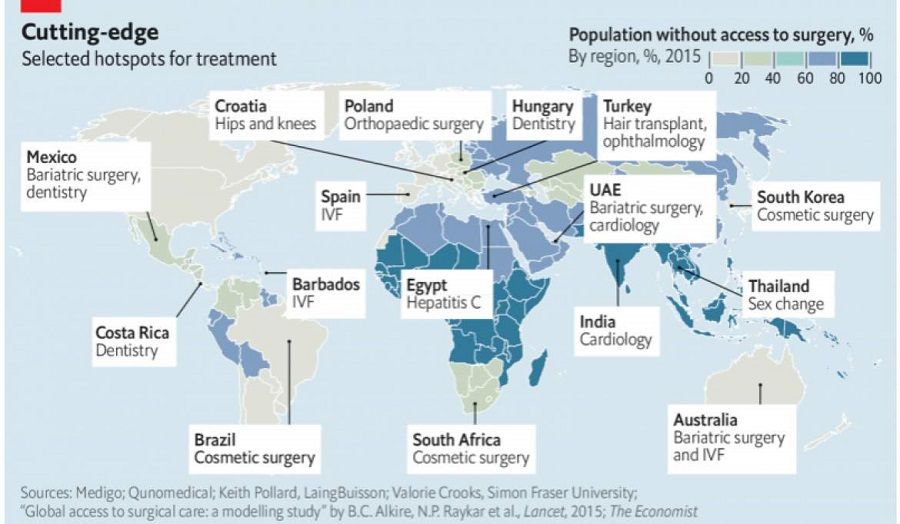
(The Economist has Croatia on the global medical tourism map)
The Croatian economy is in severe trouble, its youth emigrating en masse, and its politicians more interested in keeping things as they are than making a positive change. There is so much skepticism here about the ability to get things done for the common good rather than the private interest, but this golden opportunity with medical tourism offers us all an opportunity to publicly and transparently see if our elected and employed officials have any interest in doing the jobs they are well-paid to do to play their part in bringing this initiative forward. The potential of Croatia's medical tourism is not a secret to the authorities - the Director of the Croatian National Tourist Board picked up an award for it at last year's HTI conference.
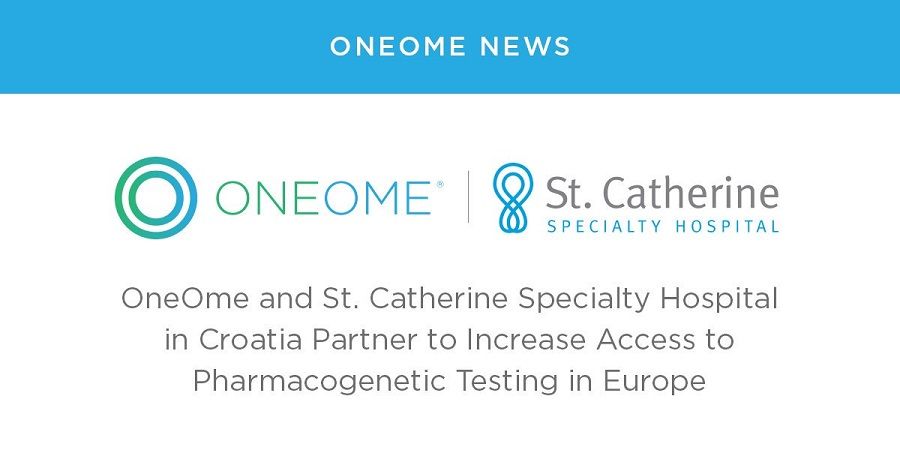
(Co-founded by Mayo Clinic, OneOme has partnered with Croatia's St Catherine Specialty Hospital to increase access of its groundbreaking pharmacogenetic testing in Europe. Learn more here.)
Below I will paint the picture of the opportunity through the eyes of global experts, all of whom have been in Croatia in the last month supporting Croatia's medical tourism industry. After that, I will show exactly how it can be done through a real-life example of a country which was also having unity issues, but which is now regarded as the best medical tourism destination in the world. Finally, I will be sending this proposal to the various tourism, business and health stakeholders in official positions, inviting their participation and feedback, and then publicly providing an update on who is, or is not, interested in working to realise this outstanding opportunity for Croatia.
Part 1 - Croatian Medical Tourism - What do the Global Experts Think?
"Croatia COULD – if it really got its act together – it could take 25% of the Hungarian dental tourism business, if it got together and did things properly. I don’t see why not. I come here a lot. I like Croatia very much." Keith Pollard, Editor in Chief of International Medical Travel Journal. Read TCN's interview with Keith at the Crikvenica International Healthcare Tourism conference last week.
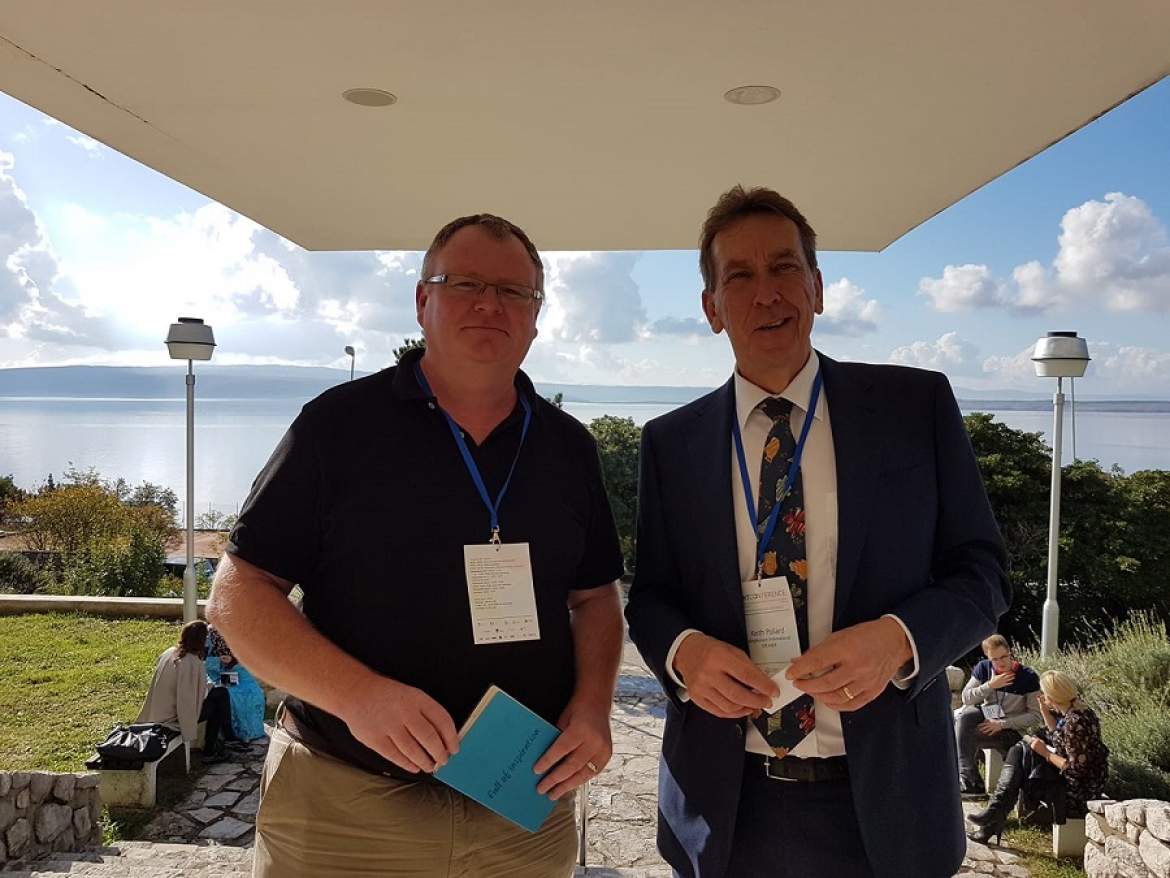
(Keith Pollard, left, Editor in Chief of International Medical Tourism Journal, with TCN in Crikvenica last week)
"This industry is huge, and rising. The official number touted around is that medical tourism is about $60 billion globally, but nobody is truly tracking the numbers, and this number comes from planned medical tourism trips. In India, for example, there are so many Indians outside the country who return home and have medical procedures. If we include these numbers, the figure must be well over $100 billion a year. Croatia can get a nice piece of that." Dr. Prem Jagyasi, global medical travel speaker, in an interview with TCN at the Adriatic Health and Tourism Investment conference in Zagreb recently. Read the full interview with Dr. Prem.
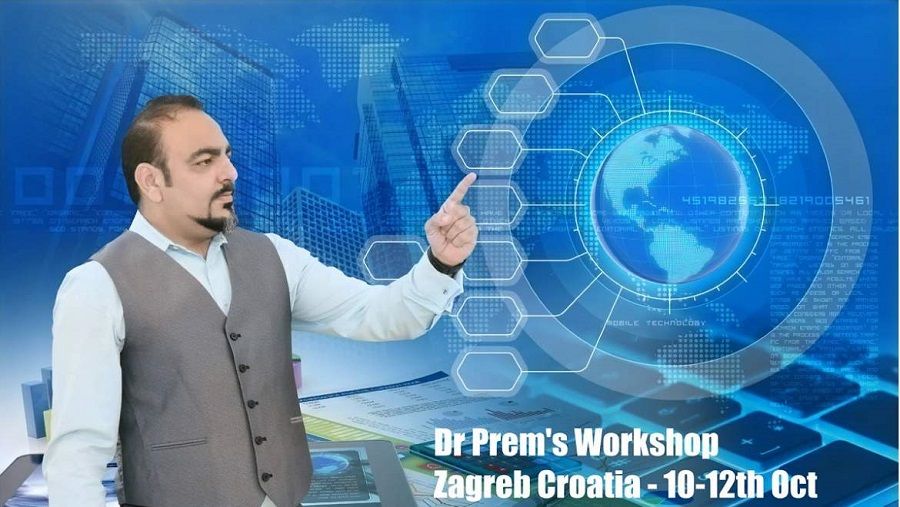
(Dr. Prem Jagyasi took part in the 2nd Adriatic Health and Tourism Investment conference in Zagreb last month)
Where could Croatia be in 5 years?
"Without doubt in the top 10 medical tourism countries in the world, if they get themselves properly organised." Drl. Prem Jagyasi, in the interview above.
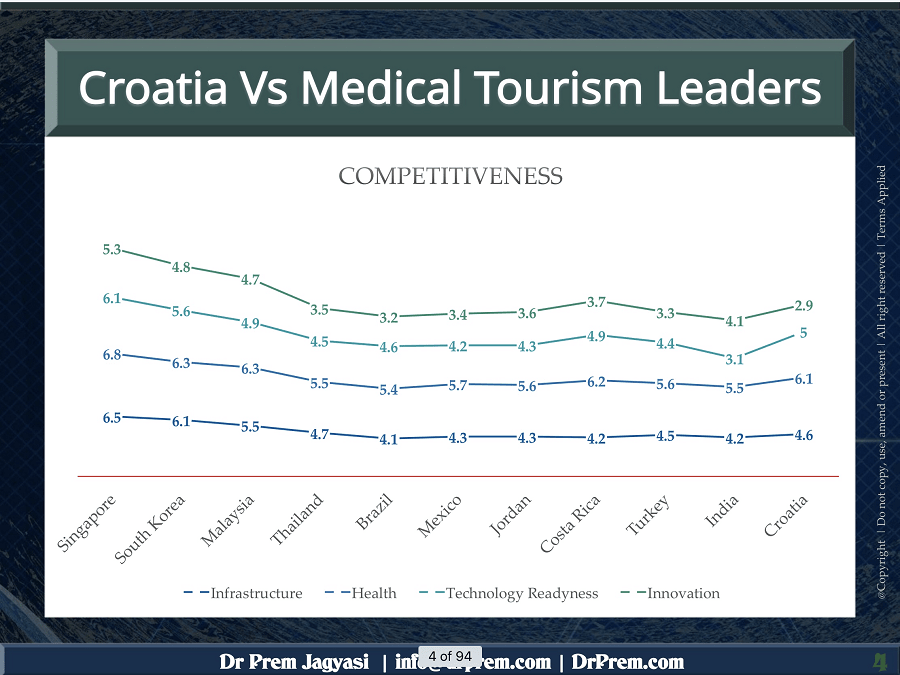
"The main lesson I learned from my travels and visits to medical tourism destinations and hospital inspections: Collaborate or die. Malaysia was no different from Croatia, they had to face the decision of being serious about the business, or just being a bunch of hospitals competing with each other. A bunch of hospitals competing with each other doesn’t help any country in creating a solid brand for its medical tourism industry." Global medical travel branding guru Ilan Geva in Crikvenica. Read the full TCN interview with Ilan here.
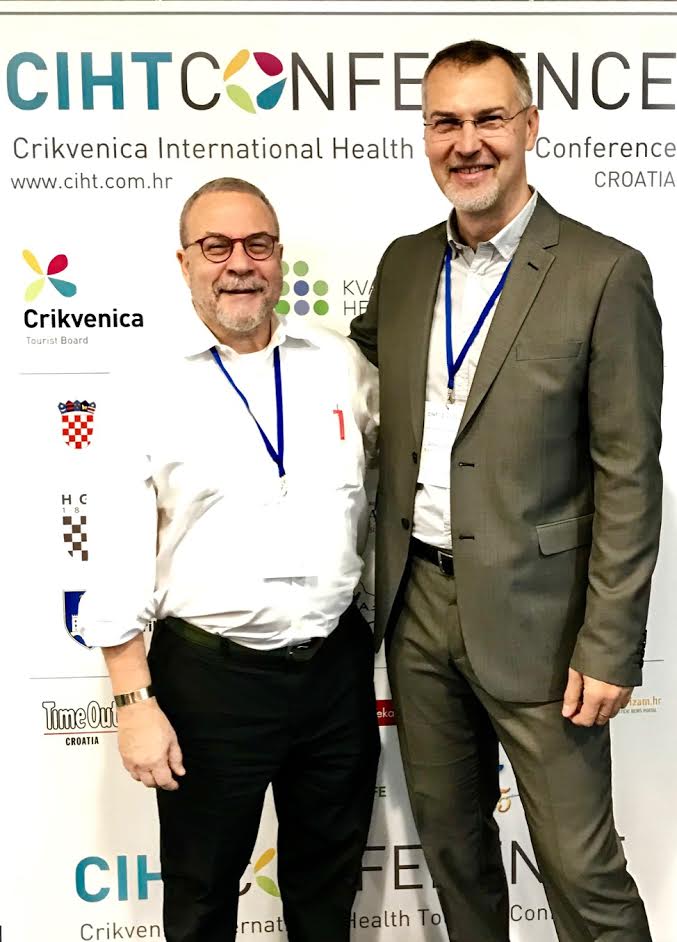
(Ilan Geva, left, at the Crikvenica International Health Tourism conference last week)
"The role of the politicians is to make the legislation easier, find a budget for health tourism, and then get out of the way." Ilan Geva.
"Malaysia overcame the obstacle of politics, budget allocation, and legal implementation and made sure that all stakeholders know exactly what they are supposed to do within the medical tourism activity. Clear, transparent and efficient. Croatia is still miles away from that situation. Building a national brand is impossible under these circumstances because there is no brand…only a bunch of providers spread all over the country."
"One of the most common sentences I hear in Croatia (as well as in other Eastern European countries) is the sentence: “We have no budget”. That has to change immediately. No one gains anything with no investment. I heard that there is actually money being spent already, the question is who spends it, on what, is it transparent, and does it deliver a clear benefit to all Croatian medical tourism practitioners. Some people complained that the Zagreb Tourist Board has commissioned an American association to do a research, or feasibility study well over a year ago paid a six-figure amount (in U.S. Dollars) and yet no one has seen anything. That doesn’t contribute to the effort of building a consensus and collaboration in this industry." Ilan Geva.
Notice one common theme? Coming together. Getting its act together.
Where Does Croatia Look to Learn Lessons about Developing Its Health Tourism Industry?
"Malaysia without a doubt is the country which has got it together. We have the IMTJ awards and Malaysia has won Destination of the Year three out of four times. They have managed, somehow, perhaps because of the culture, to get all the bodies and stakeholders together. I have been there and been through the process, and it is real." Keith Pollard, Editor in Chief of International Medical Travel Journal.
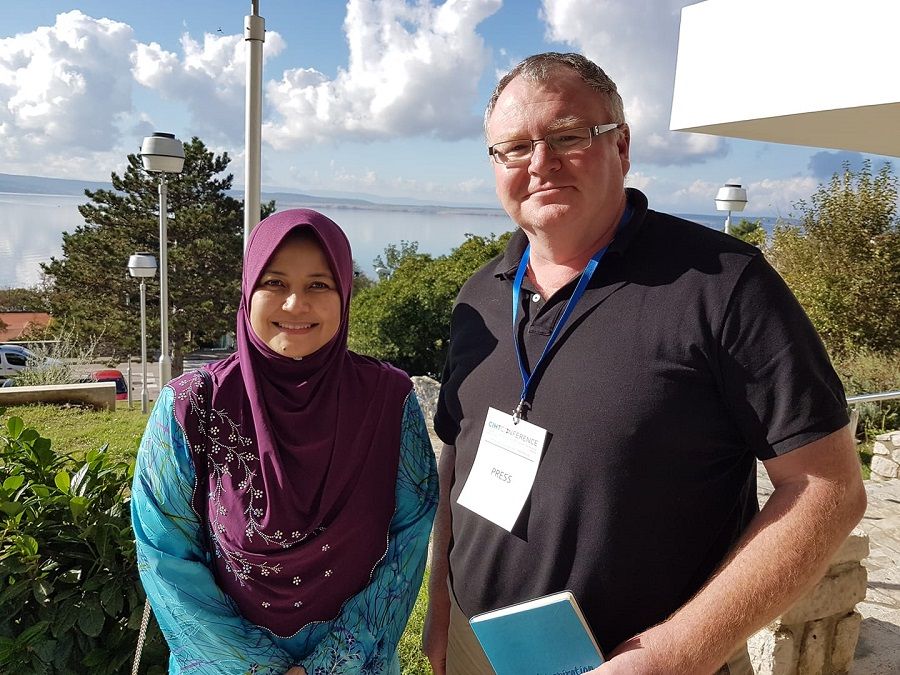
As luck would have it, Sherene Azli, CEO of the Malaysian Healthcare Travel Council, which runs the most successful medical tourism in the world, according to recent IMTJ (and other) awards, was also a keynote speaker in Crikvenica, and Sherene kindly agreed to an interview with TCN, which you can read in full here.
The key to Malaysia's success is unity and togetherness. Sherene runs MHTC as a public-private company within a department of the Ministry of Health, reporting directly to the Ministry of Finance. She coordinates all the stakeholders involved, which takes up 90% of her working hours, with the result that from the moment the patient arrives at the dedicated medical tourism arrivals lounge at a Malaysian airport until the moment of departure, all stakeholders are working to provide the very best service to that patient. As Sherene wrote:
"The reality is, it can only be done TOGETHER with all our stakeholders. Hence our tagline of #kitamenangsamasama which means #wewintogether #MHwinstogether."
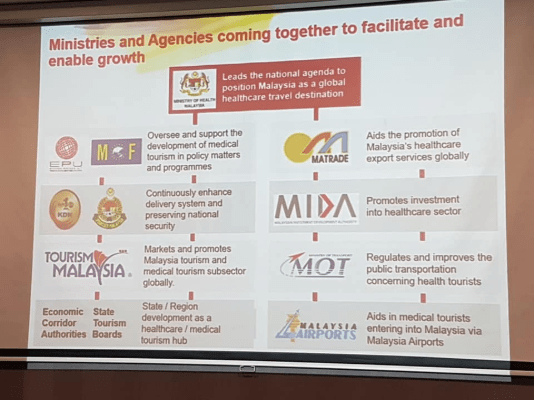
As Ilan Geva noted above, Malaysia has succeeded but the process was far from easy. But it can be done. My question to the stakeholders in Croatia (look at the agencies in Malaysia pulling together in the slide above), can it be done in Croatia? Are you ready to work for the good of Croatia, to provide wealth and jobs, to make Croatian medical tourism one of the top 10 - or better - in the world?
What is Happening with Croatian Medical Tourism at the Moment?
To say that nothing was being done would be incorrect - there is a LOT happening on the ground. To say that it was in any way coordinated however...
There is a video...
The Croatian National Tourist Board explained in Crikvenica that it had invested 4 million kuna in medical tourism, without providing details. As Ilan Geva noted above, the Zagreb Tourist Board has apparently spent at least $100,000 on a special study of medical tourism, but no more details are available. The Ministry of Tourism speaks of the importance of medical tourism and it being included in a strategic document, again without any specific details. I am sure that the Ministry of Health has a position on all this as well, but I have not been able to ascertain it.
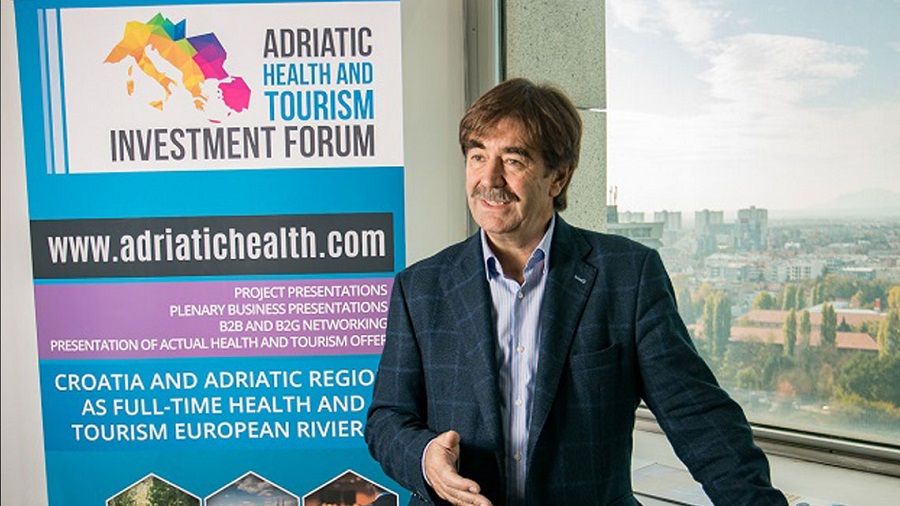
(There is plenty of intereest and energy in promoting the Croatian medical tourism industry, if only there was a coherent strategy. Miljenko Bura, organiser of the 2nd Adriatic Health and Tourism Conference in Zagreb)
Private clinics have been moving ahead, frustrated at the lack of official coordination. The Kvarner Health Cluster is the most globally recognised, but there are other health clusters as well, notably in Zagreb. Some private clinics are making real inroads on the international stage - St Catherine Specialty Hospital, Bagatin Clinic and Svjetlost, and their marketing investments for private businesses are huge. The problem, as Ivan Gabric of Svjetlost said in Crikvenica is that "a private business cannot brand a destination."
Various, fragmented initiatives, all of which result in one thing - confusion about the Croatian medical tourism market internationally, no cohesion, and clinics and regions battling against each other, rather than trying to win together to establish Croatia as a premier health tourism brand.
What if - close your eyes for a minute and imagine this - all the Croatian stakeholders came together, Malaysian-style, #zajednopobijedjemo?
Who are the Key Stakeholders to Develop Medical Tourism in Croatia?
I am, of course, not an expert, but my initial list would include:
- The various health clusters already in existence
- The main clinics
- Croatian National Tourist Board
- Zagreb Tourist Board
- Other regional tourist boards
- Key hotel groups
- Ministry of Tourism
- Ministry of Health
- Ministry of Economy
- Ministry of Finance
- Croatia Airlines
- Zagreb Airport
- Representative for the Croatian diaspora, a major medical tourism potential market
- Media/PR/Marketing reps to help brand, promote and tell the story
What are the Next Steps for Medical Tourism Development in Croatia?
Assuming we all want to win together, Malaysian-style, here are the next steps I would take, having watched the industry quite closely over the last few weeks:
1. Bring all interested clinics and clusters together to brainstorm and agree what it is that the medical tourism sector can offer.
2. Then bring the stakeholders together to brainstorm on the potential directions.
3. Appoint an independent and capable leader to run the project, with an agency which is independent and reports to one ministry only. Give that person authority and a budget.
4. Go on a fact-finding mission to Malaysia, to learn as many lessons as possible.
5. Go on a second fact-finding mission much closer to home. To Budapest, and learn how the phenomenal Hungarian dental tourism industry operates.
6. Get the stakeholders together to brainstorm on how to implement the Malaysian and Hungarian models in the Croatian context.
I would also include in the planning a provision of some tax or percentage profit to go from the private medical tourism sector, if it is supported as above, to be paid to the public healthcare system. That way, if Croatia works to develop its medical tourism industry, the medical tourism industry can boost the coffers of the public healthcare system. As they say in Malaysia, We Win Together.
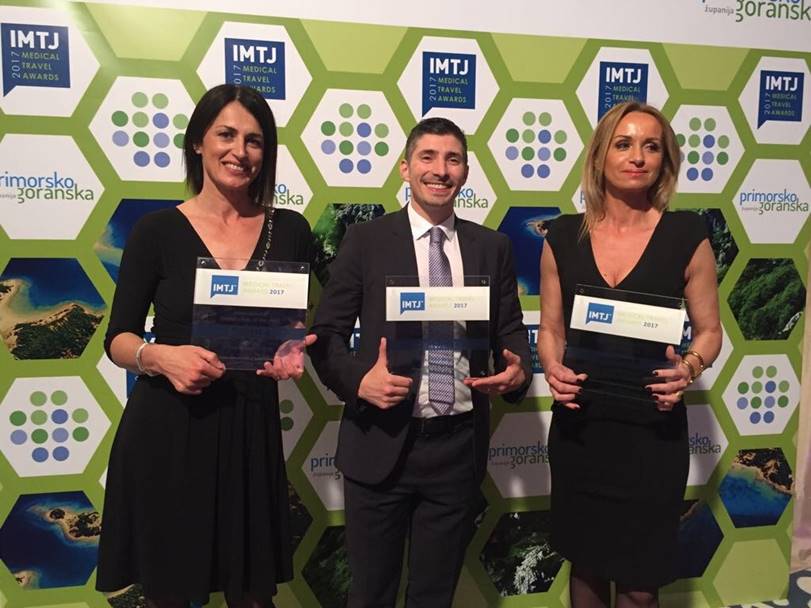
(Croatian health tourism quality on the international stage - IMTJ award winners, Rident, Bagatin Clinic and St Catherine Specialty Hospital)
"The biggest challenge is the lack of vision. Where we want to be as a destination in 2025 or 2030 is the key point to position Croatia as the top medical tourism destination in the future. We need to know where we are going and how we can get there. We have great clinics in Croatia, but nobody knows about us internationally and this we can change if we work together (Public and private sector) on positioning Croatia as a European medical tourism hub. " Ognjen Bagatin, CEO of Bagatin Clinic.
The private medical tourism sector is ready to move forward with this process to put Croatia in the top ten on the global map. Let's find out if Croatia's state institutions are equally motivated. I will send this article with an invitation of collaboration to the various stakeholders, and report back on progress in due course.
If you would like to get involved with this initiative to promote Croatian medical tourism, contact us at This email address is being protected from spambots. You need JavaScript enabled to view it., with Subject - Health.
To follow the latest TCN coverage of medical tourism in Croatia, click here.
Croatian Medical Tourism: Great Potential, Collaborate or Die Says Ilan Geva
November 14, 2018 - Another busy week for the emerging Croatian medical tourism industry. Branding guru Ilan Geva gives his thoughts after his latest visit to Croatia.
It has been quite a week for the Croatian medical tourism industry. Keith Pollard, Editor in Chief of the International Medical Travel Journal, in an interview with TCN, talked about the Croatian potential, as well as assessing that the country could take 25% of the Hungarian dental market 'if Croatia got its act together'; Sherene Azli, CEO of the Malaysia Healthcare Travel Council, which runs the best medical tourism in the world in Malaysia, was in town to explain how Malaysia does it; and global branding guru Ilan Geva was in Croatia for a week, both as a speaker at CIHT 2018, having already performed a special workshop for industry professionals on branding Croatian health tourism in Zagreb. TCN caught up with Ilan after a busy week.
1. You have just spent a week in Croatia, your latest visit since your first 10 years ago, and you held a specialized branding workshop with industry leaders, as well as performing as a keynote speaker at the 6th Crikvenica International Health Tourism conference organized by the Kvarner health cluster. How was your week, and what did you learn?
Every visit to Croatia is a good one for me. I simply like to come here, and get involved in knowing the healthcare providers, visit the hospitals and clinics, and mingle with the movers and shakers of the industry. I always see another angle in my visits, sometimes I focus on one single client, and sometimes I have the time to spend on my own and observe. This last week was indeed intense, since 4 out of 6 days on the ground I was presenting to audiences and following up with conversations.
It is clear to me that the Croatian medical tourism industry is now on a crucial crossroads. There is lots of work to be done. I learned that not everyone agrees on what to do and how to do it. And I came to a very simple conclusion, Croatians must build a national brand for the emerging medical tourism industry.
They must decide which government office supports the effort (only one!) and they must have a sense of urgency, there is no time to waste, the competitors are not waiting.
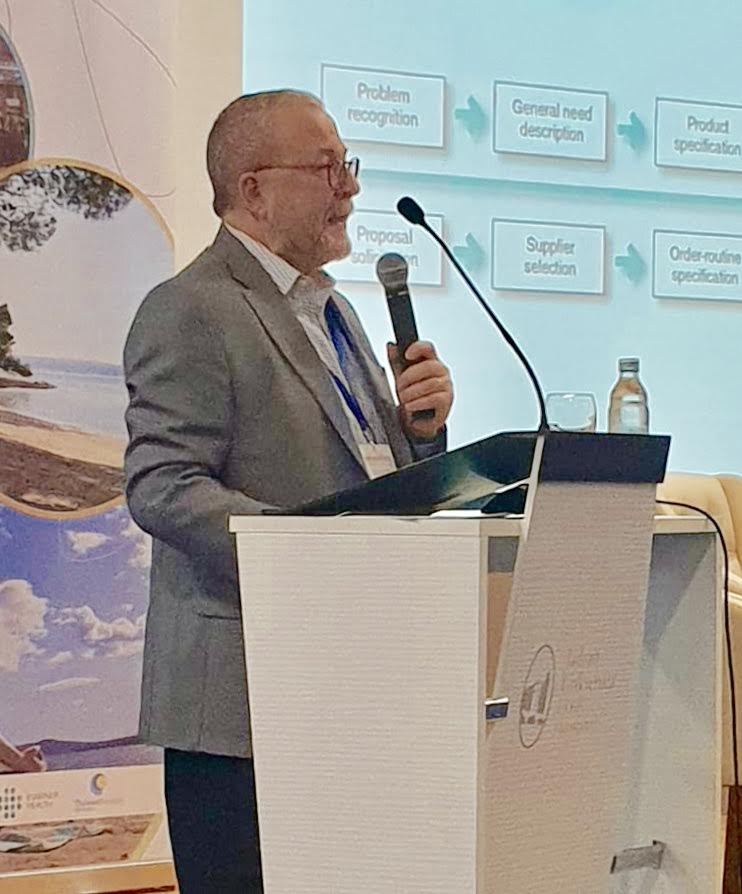
2. You first came to Croatia back in 2008 to help a dentist in Rovinj. Tell us about that, and how the Croatian medical tourism story has progressed since then?
Back in 2008 the entire concept of medical tourism was in its infancy, as far as organized business category. Many providers felt that it is enough to just have a nice clinic and people will show up. There was absolutely no data, information, or anyone to learn from. The wonderful doctor in Rovinj was indeed a very competent doctor, and has presented new treatments in stem cell therapy, but he was a bit naïve. He believed that if he will give me a budget of $400 a month, I would be able to send him 200 patients a year from the U.S.Mathematically this is so improbable, that I saw no point in continuing the conversation. He basically offered me $24 per patient delivered!
And I am not even a facilitator, I am a brand builder and a marketing professional. The situation now is a bit different, but one of the most common sentences I hear in Croatia (as well as in other Eastern European countries) is the sentence: “We have no budget”. That has to change immediately. No one gains anything with no investment. I heard that there is actually money being spent already, the question is who spends it, on what, is it transparent, and does it deliver a clear benefit to all Croatian medical tourism practitioners. Some people complained that the Zagreb Tourist Board has commissioned an American association to do a research, or feasibility study well over a year ago paid a six-figure amount (in U.S. Dollars) and yet no one has seen anything. That doesn’t contribute to the effort of building a consensus and collaboration in this industry.
On the other hand, the overall situation progressed a lot because these days there are extremely successful hospitals and clinics in Croatia, and the awareness is starting to build up, mostly by word of mouth.

3. One of the key messages of your workshop was the need for all the stakeholders to come together, in a way that Malaysia has managed so well. Give us your vision of the stakeholders involved in getting the momentum behind the promotion of Croatia as a medical tourism destination.
The main lesson I learned from my travels and visits to medical tourism destinations and hospital inspections: Collaborate or die. Malaysia was no different from Croatia, they had to face the decision of being serious about the business, or just being a bunch of hospitals competing with each other. A bunch of hospitals competing with each other doesn’t help any country in creating a solid brand for its medical tourism industry.
Thailand, The Philippines, Israel, Greece and others have some few excellent hospitals. But in fights, inaction, political battles and “lack of budget” kill the opportunity to become a global brand in medical tourism.
Malaysia overcame the obstacle of politics, budget allocation, and legal implementation and made sure that all stakeholders know exactly what they are supposed to do within the medical tourism activity. Clear, transparent and efficient. Croatia is still miles away from that situation. Building a national brand is impossible under these circumstances, because there is no brand…only a bunch of providers spread all over the country.
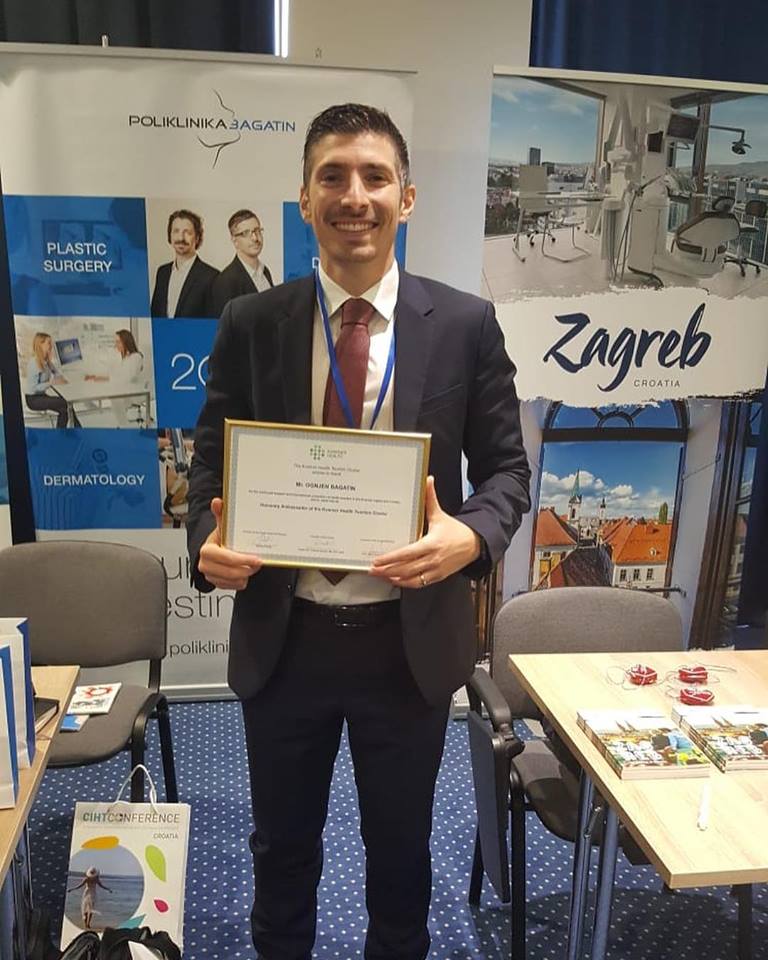
(Ognjen Bagatin of Bagatin Clinic, one of four Croatian clinics Ilan Geva singles out for Croatian medical tourism)
4. You travel the medical tourism globe, and have done for many years. Many Croatians will be surprised to hear that its medical tourism industry has such potential. Paint a picture of that potential, who are the key players in it, and where does Croatian medical tourism stand now, and where could it be in 10 years?
I will name only four businesses that are in the “Premier League” of medical tourism in Croatia: St. Catherine Specialty Hospital, Poliklinika Bagatin, Terme Selce and Svjetlost Clinics. They are each specialists in a separate area, and they are all extremely successful at what they do. They are also aware of the power of brand building, marketing excellence and delivering superb customer satisfaction. There are many other great clinics spread around the country, primarily in tourist destinations, such as Istria, Dubrovnik, Split etc. but they do not have the mass needed to build a global clientele.
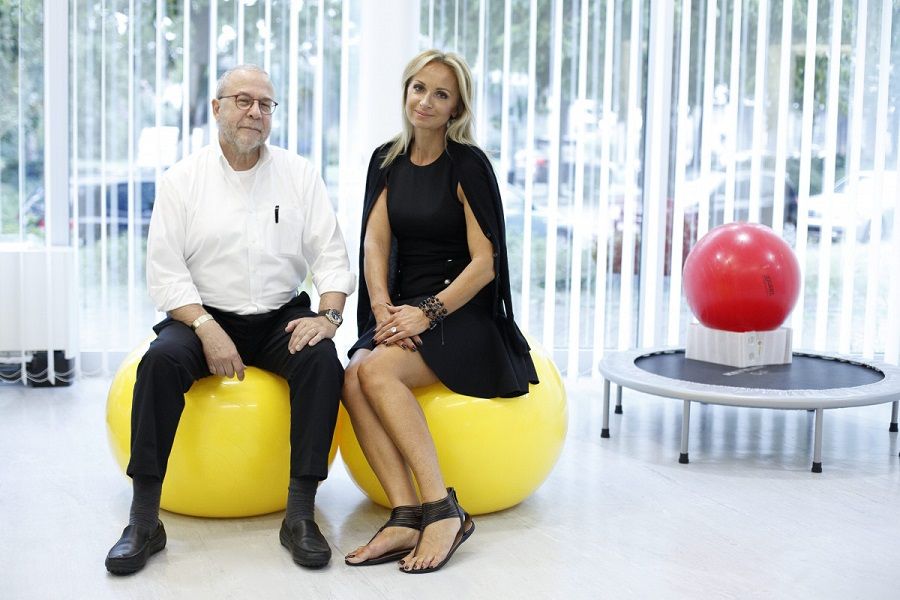
(Ilan Geva with Jadranka Primorac from St Catherine Specialty Hospital)
5. One of the things I learned this week is that the brand of the Kvarner health cluster seems to be stronger than that of Croatia in the industry. What are your thoughts on that?
What I love about the Kvarner Health Cluster is the fact that they are all about initiative. They are a good example of an organization that is trying to do the best for all its constituencies, and lift them all to a higher level. I personally don’t know if the Kvarner brand is more prominent than any other brand in medical tourism, but I also know that Croatia has no national brand in medical tourism…Simple. Croatia has a very strong brand and brand awareness in sports, but not in any medical institution, medical university, research facility or breakthrough innovation. Some of the brands I mentioned above have parts of this reputation, but not the country as a unique entity.
If you ask today anybody in any European location “What is Croatia know for”, I am willing to bet that no one will say “Excellent medical treatments”.
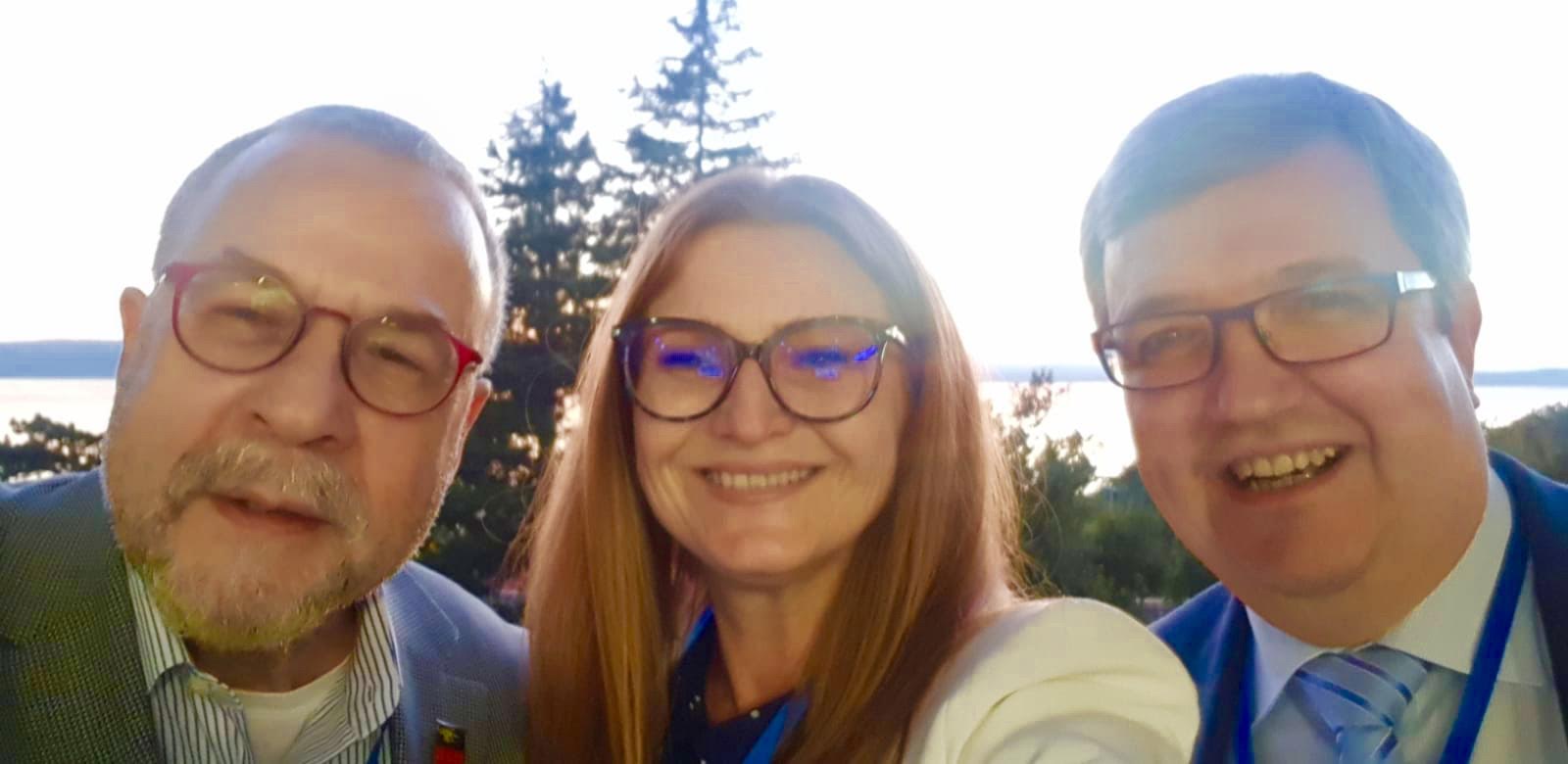
6. Which markets do you think the Croatian medical tourism industry should target, and why?
Draw a circle around Zagreb, which represents up to 5 hours flight, and that circle may include the potential market for Croatia’s medical tourism market. Anything else will be a surprise for me.
7. As a frequent visitor to Croatia with an interest in health tourism, give us a paragraph on the potential healthcare and tourism experience which awaits patients.
This is a very broad question. But I will try to answer it via some examples. First, Croatia does have a brand in the tourism industry. The visitors to Croatia know that they can expect a beautiful clean and pristine country, with amazing sights, fantastic food, and very nice people. That is hospitality, and Croatians are known to be wonderful hosts. But even in this category, there are already voices that warn people not to show up in Dubrovnik at the height of the season, because the place is too small to contain all the visitors, and the level of service is deteriorating…Some of the great generosity and professionalism Croatians display in tourism is also evident in medical treatments. But the country does not have certain standards that will welcome patients in every location across the country. The customer experience might vary, and that is a danger when going forward.
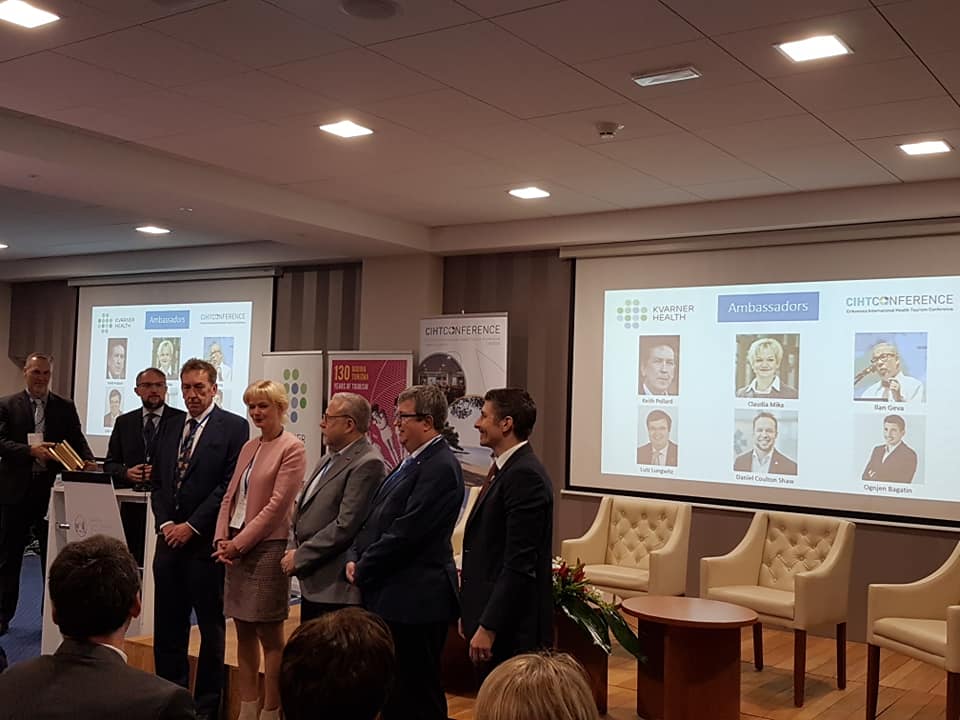
(Ilan Geva was among the nominated ambassadors by the Kvarner Health Cluster in Crikvenica at CIHT 2018)
8. You were given a special recognition in Crikvenica at CIHT 2018, as one of the conference ambassadors, and you were given an extra gift at the end - a Luka Modric shirt. Tell us about that and the hospitality you received in Crikvenica, where you were clearly very at home.
The truth is that I was booked at another conference in Korea at the same time the CIHT conference took place. Suddenly, that conference was cancelled, and I was joking with Vladimir that I will come only if he will give me a Luka Modric official team shirt…Little did I know that he would take it seriously. I am actually glad he did! I was betting with all my friends in Chicago that Croatia will make it all the way to the finals, and they all laughed at me…they simply don’t know the grit of the Croatian people. If Croatians will demonstrate the same team spirit and determination in Medical Tourism, as they did in the World Cup, nothing will stop them!
My last visit to Crikvenica was the fourth one, and I enjoyed all of them, even in the winter. I know from personal experience that the people are extremely generous, professional and very welcoming. I also know from personal experience that as medical professionals they are good, very good.
Now what we have to do is make them famous around the world, and position them as the right people in the right place.
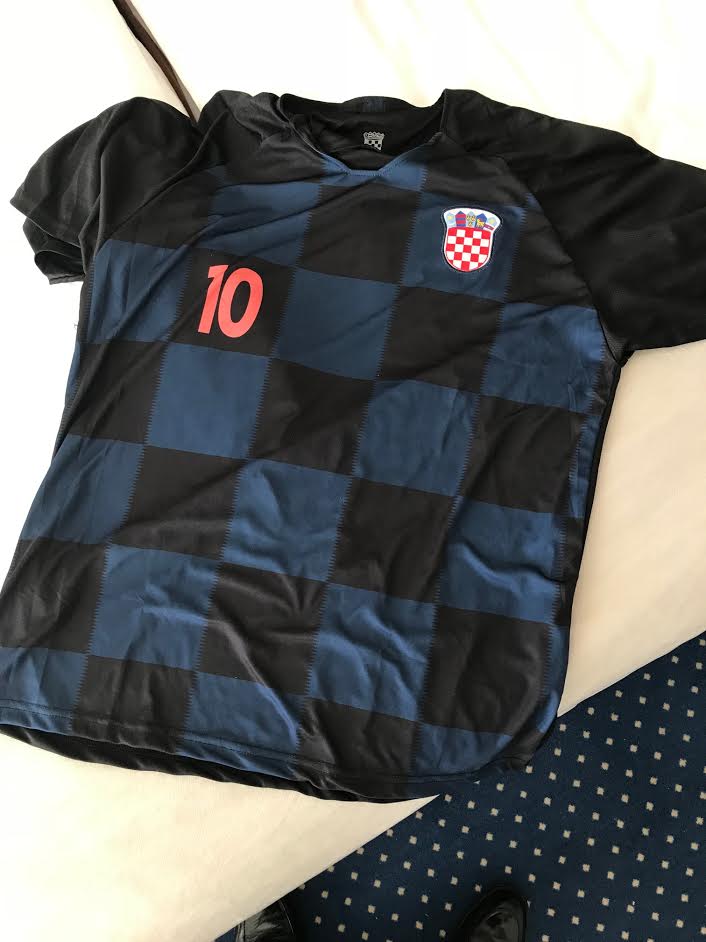
(The Luka Modric shirt...)
To learn more about Ilan Geva, check out his official website.
To follow the latest from the Croatian medical tourism story, click here.
Lessons from Malaysia in Croatia: MHTC CEO Sherene Azli on Health Tourism
November 12, 2018 - One of the many things I love about my job running Total Croatia News is that there is so much to cover in this beautiful country, and each day brings a new surprise and opportunity for learning.
It is now more than a year since I was alerted to the quality of the very best in Croatian health tourism. St Catherine Specialty Hospital, a Leading Hospital of the World and recent European partner with Mayo Clinic for the new OneOme RightMed pharmacogenetic test; Bagatin Clinic, named the best dermatology clinic in Europe to add to a host of dental awards; Svjetlost Eye Clinic, a regional leader attracting Hollywood stars from California. The list goes on. You can read more about my early discovery of health tourism in Croatia here.
All this led me to a specialised workshop at Bagatin Clinic last Monday, where global medical travel branding guru Ilan Geva spent the day with industry leaders discussing the branding of Croatian medical tourism. It was a very thought-provoking day for all involved, and it was – for me – the first mention of an Asian country which was apparently setting the standards in medical tourism worldwide. As I noted in my report on the seminar:
A little online research, and it seemed that everyone was talking about Malaysia – the Facebook page of International Medical Travel Journal last week was quoting the Malaysian Prime Minister.
Three days after Ilan Geva’s seminar in Zagreb, I found myself taking him up on his suggestion to come down to Crikvenica to see how the Kvarner Health Cluster was doing things. One of the keynote speakers at the Crikvenica International Health Tourism conference was Keith Pollard, Editor in Chief of IMTJ, who kindly agreed to an interview with TCN (you can read it here). He also had some rather nice things to say about Malaysia:
It was time to meet Malaysia…
I have been to a lot of conferences in my life, but I was not quite prepared for what happened next. Sherene Azli, CEO of the Malaysian Healthcare Travel Council (MHTC) gave a presentation called Experience Malaysian Healthcare, Embrace Malaysian Hospitality.
She put on quite a show.
Before we get to Sherene’s presentation, one of the best moments of the first day of the conference was Sherene’s explanation of this slide, above.
“I am probably the only Muslim in the room,” she said. “But I want to share something with you regarding hospitality. On the left in the photo above is what greeted me in my Crikvenica hotel room – qibla, prayer mat and Koran. And on the right – halal breakfast options. I have only had that once before in 60 countries of travel – last year at the Hilton in Zagreb. Thank you Croatia, I have learned something that we can implement back in Malaysia.”
It was a beautiful and humble moment for me – here was the market leader coming to help a country trying to establish itself on the market, but humble enough to recognise and emerge from the experience with a learning experience of its own. I was beginning to have warm feelings for Malaysia…
How many people know where Malaysia is? Croatia is obviously not a target market for Malaysia for medical tourism, or for Croatians for tourism in general, but I felt a little embarrassed that I could not quite pinpoint Malaysia on the map. But what followed has had me researching Malaysia a lot since.
For this is a country which has REALLY got its act together, bringing all its key institutions together for the greater good – the promotion of Malaysia as a medical tourism destination. After her very impressive presentation, I asked Sherene how Malaysia did it and how it all started:
It started maybe 15-20 years ago, but on a very small scale. Back then Penang was a destination for Indonesians. But back then, the trend was more outbound - Malaysians would travel to places like Singapore to get treatment. But once we noticed Indonesian visitors coming to Penang for treatment, we noticed perhaps the potential to develop this sector of tourism.
So in 2009, we set up the Malaysia Healthcare Travel Council, as a department in the Ministry of Health. By 2011, it was made into a corporate body. It is like a private body, but I report to ministers. It used to be the Minister of Health, but now it is the Minister of Finance.
The mandate was twofold - facilitation of the industry and then the promotion. So before we could start selling what we had, we had to get the facilitation right. MHTC has been doing that since 2011, looking at tax allowances, how we build the infrastructure, how we encourage development with the different states of Malaysia. I gave the example of Penang in my presentation, but we work with all the different states in Malaysia.
After we did all the planning for the facilitation, we embarked on promotion. For Malaysia, one of the challenges is that our currency is quite weak. So when we want to promote internationally, it is very costly. In China, for example, a simple campaign can cost US$1 million, and we don't have that money.
So what we have done is to collaborate with Malaysian agencies on the ground such as Tourism Malaysia or investment organisations like the Malaysian External Trade Development Corporation. It is very expensive for individual hospitals to go out and promote, so we help with the coordination. So the private sector invests in a more cohesive manner, and we have a culture of cooperation and competition. Focus on marketing the destination - Malaysia - first and foremost, then build your brand as an individual hospital or clinic. So that has been our strategy, and we have made a lot of progress since 2011.
Now EVERYONE wants to be in medical tourism, and the competition is strong. The bar was already high, but now it must go higher.
And here we are in Croatia. How did you get here?
It is actually my second time. I was invited to speak at a conference in Opatija last year. I was invited to speak at CIHT 2018 to share our experiences in Malaysia, and I am delighted to be here. It is a very beautiful country.
I am quite new to the medical tourism scene, and I don't have your experience or perspective. Tell me about Croatian medical tourism from your perspective - how is it doing?
Croatia has a very rich tourism history, dating back to the 19th century I think. Regarding medical tourism, there is big potential, but unless you can get everyone working together, the results will be very fragmented. Whether you like it or not, Kvarner Health Cluster is doing a great job promoting this region, but it may seem to be in competition with other regions in Croatia by doing that.
If you are promoting Croatia, and one region in particular is promoting itself, it is then competing against other regions, and that can be a waste of resources. All the stakeholders should be working together. In Malaysia 90% of my job is working with the stakeholders towards a coordinated approach.
This is my fourth year in the job, and I realised that if it was going to work, I needed the support of the main stakeholders. So I went to see them and asked them to support me in my decisions, or this was not going to work. It has not been easy, but we are making progress.
Coming back to Croatia, what is the reputation of Croatia's medical tourism industry? Does it have one?
When it comes to medical tourism in Eastern Europe, there are two countries which always come up - Croatia and Hungary. So the good news is that you are in the top two, but then I hear about Kvarner and other things, and I get confused - where is the focus? That's my perception. I may be wrong, but that is how it comes across to me.
So it is fair to say that Kvarner almost has a bigger brand than Croatia for health tourism?
Yes, definitely. Which is good news for Kvarner or course. But looking at Malaysia, perhaps it is similar to how Penang was at the beginning. But one thing we realised very early on in Malaysia is that everyone can benefit. You don't have to fight. I was given a mandate to bring everyone together for the benefit of Malaysia and the health tourism sector, and that is what I am working very hard to do.
(Perhaps Malaysia’s best medical tourism ambassador – its 93-year-old Prime Minister who had a double heart bypass when he was in his 60s and 80s. In Malaysia of course…)
To learn more about medical tourism in Malaysia, visit the MHTC website here.
To follow TCN coverage of health tourism in Croatia, click here.
Croatian Health Tourism: Interview with IMTJ Editor Keith Pollard in Crikvenica
November 10, 2018 - TCN meets Keith Pollard, Editor in Chief of International Medical Travel Journal on the potential for Croatian health tourism at CIHT 2018 in Crikvenica.
Among the many high-quality Croatian and international expert speakers at this year's Crikvenica International Health Tourism conference was Keith Pollard, Editor in Chief of the most influential media in the health tourism industry, the International Medical Travel Journal (IMTJ). TCN caught up with Keith to talk a little about Croatian health tourism potential after his thought-provoking presentation at the conference - Developing a Medical Travel Strategy for a Hospital or Clinic.
Give us a little advice on Croatian health tourism. Who do we look to for best practices, and where can Croatia realistically compete on the market?
Let me start by saying that there is massive hype around this sector. Massive. Everyone thinks they can do medical tourism, but if you are looking for one place to learn from, study Malaysia.
Malaysia without a doubt is the country which has got it together. We have the IMTJ awards and Malaysia has won Destination of the Year three out of four times. They have managed, somehow, perhaps because of the culture, to get all the bodies and stakeholders together. I have been there and been through the process, and it is real.
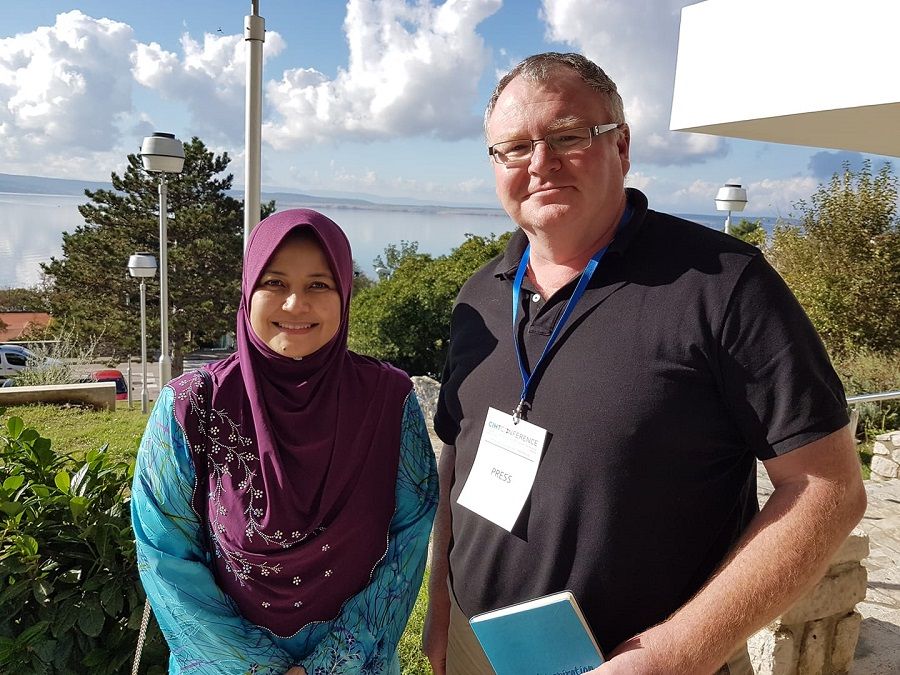
You come off the plane, and the lady is waiting with your name to greet you. Sherene (Azli, CEO of Malaysia Healthcare Travel Council, above, also a speaker at the conference) has I think 35 staff, and they have put a real investment into the process. And you can see it is working. The other thing Malaysia does well is to measure any kind of result. They do it because the government says they have to provide the data. Dubai also does it because it is also required.
Croatia does not have anything like this. In many ways, Croatia is like Spain, which is a similar destination in many ways. There, the government threw some money at it, but it was not measured and ineffective. What made the difference was is the individual guys running the clinics. That is what has driven their medical tourism business. You have entrepreneurs who have a sensible marketing, a business brain, and they see the opportunity and do a great job marketing it. Croatia has a little of that entrepreneurial businessman coming through, with Bagatin Clinic the most prominent. Ognjen Bagatin is one of the most entrepreneurial people in this country.
(How the Malaysians do it - codename UNITY)
Croatia could learn from the way that Hungary developed its dental tourism business. Basically, it was seven clinics which came together. It was not the government which did anything. Those seven came together and formed the Association of Hungarian Dental Clinics, and they set some standards in terms of what their members would offer international patients. And now Hungary has a very good patient experience.
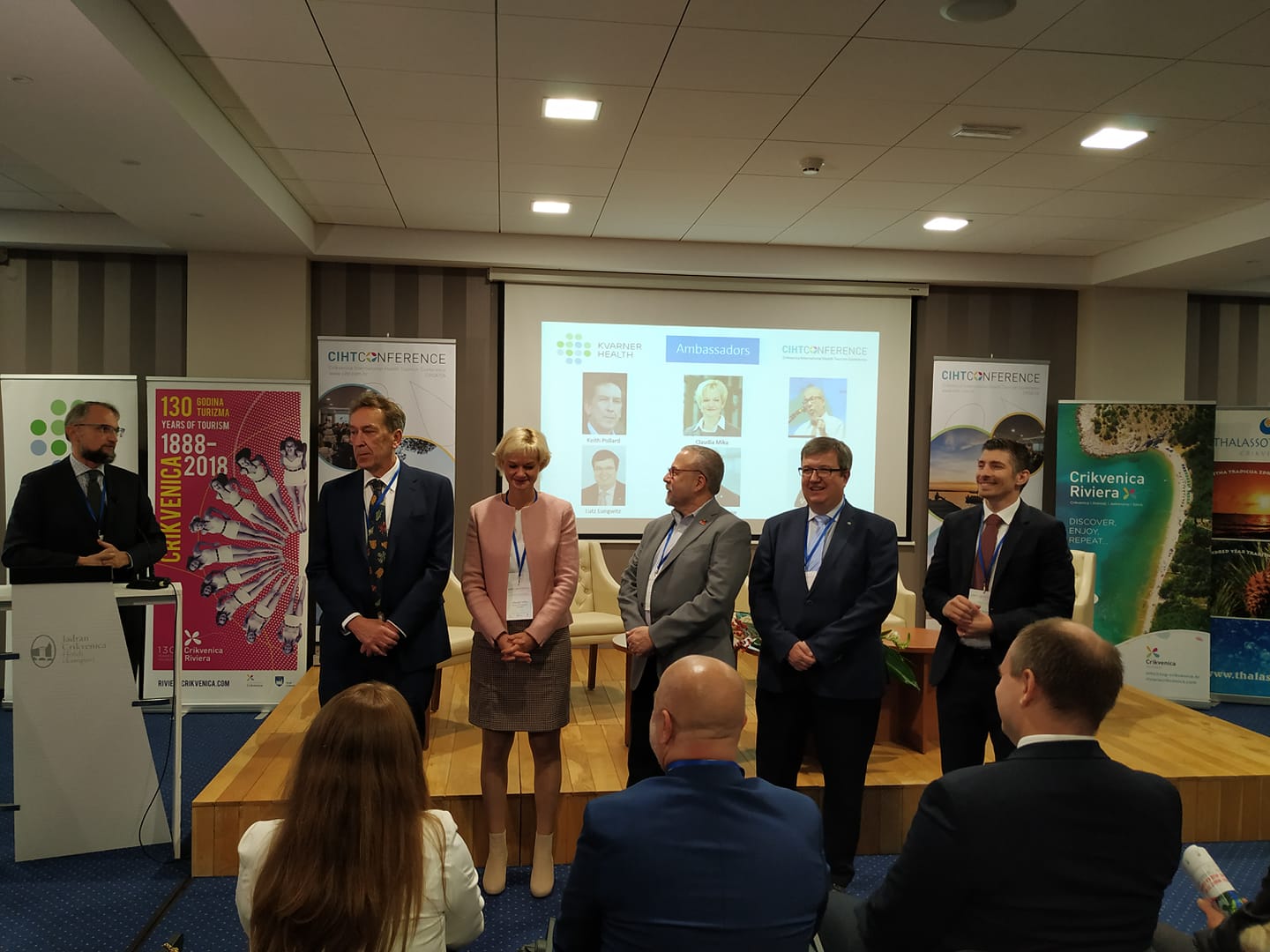
(IMTJ's Keith Pollard was one of six ambassasors of CIHT who were recognised by the Kvarner Health Cluster at the opening of the conference)
The patient has a warm welcome at the airport, the hotels are set up for dental patients, with special menus. More than half the occupancy of some hotels is due to patients going to these seven clinics. Getting a bunch of like-minded business people together who see the potential is what started things off.
You go to somewhere like Creative Dental in Budapest, which is one of the best models, and you have a 7-storey, purpose built property, 15 dentists, a laboratory, internet café on the roof. And all along the wall, details of all the international media they have received. It is hugely impressive.
What is the difference in quality between Croatian and Hungarian dental care?
I don’t think there is really. Hungary did very well in the UK if you go back 10-15 years when there was a real shortage of dentists, and it went to two countries to find dentists – Hungary and Poland. The NHS hired hundreds of dental workers, and so this certainly helped Hungary, as UK patients were used to Hungarian dental professionals.
How much of a hindrance is it for Croatia has so few low-cost flights, compared with somewhere like Budapest?
I always fly BA, so it is not a problem, but for the budget airline market, yes, Zagreb is missing out. Wizzair, easyJet – it does make a big difference.
Croatia has 18 million tourists a year. If just 1% of those can do get their teeth or eyes done on holiday, that would be 180,000 patients a year.
I wouldn’t do it while they are on holiday though. I can’t understand why Croatia doesn’t market its health tourism better. Data is key, and you have all the data on all these tourists. You have 4 million a month in peak season, and then it drops to 300,000 a month in January, which is why everywhere is shut in winter.
You have this captive market of tourists who love Croatia, who probably never even think of getting their teeth done in Croatia. There is no connection in their minds between Croatia the summer destination and Croatia as an affordable quality healthcare solution. Crikvenica is beautiful today in November. Get the tourists back for healthcare out of season.
You have this positive, captive consumer. You don’t even have to sell to that many – get them to come back in February.
Where is Croatia going to be on the medical tourism map in 10 years?
It COULD – if it really got its act together – it could take 25% of the Hungarian dental tourism business, if it got together and did things properly. I don’t see why not. I come here a lot. I like Croatia very much.
How big is the Hungarian dental market?
I don’t know exactly, but I know of one clinic dealing with 800 patients with average spend of 5,000 euro a month, for example. I also know how much they spend on marketing. But that is just one of the big clinics. Go and do the maths. How much does he spend on Adwords each month? A lot. And they target very well – one of his biggest markets is Finland, for example. Finns, Brits, Irish, Germans and other Scandinavians. And the way they market in Finland is very different. They will sponsor concerts in various target cities and get their name out that way. Very impressive.
****
Lots of lessons to be learned in Crikvenica, and many thanks to Keith for his time. A country of excellence to learn from – Malaysia. A market to learn from and compete with much closer to home – dental tourism in Budapest.
To follow our coverage of health tourism in Croatia, click here.

